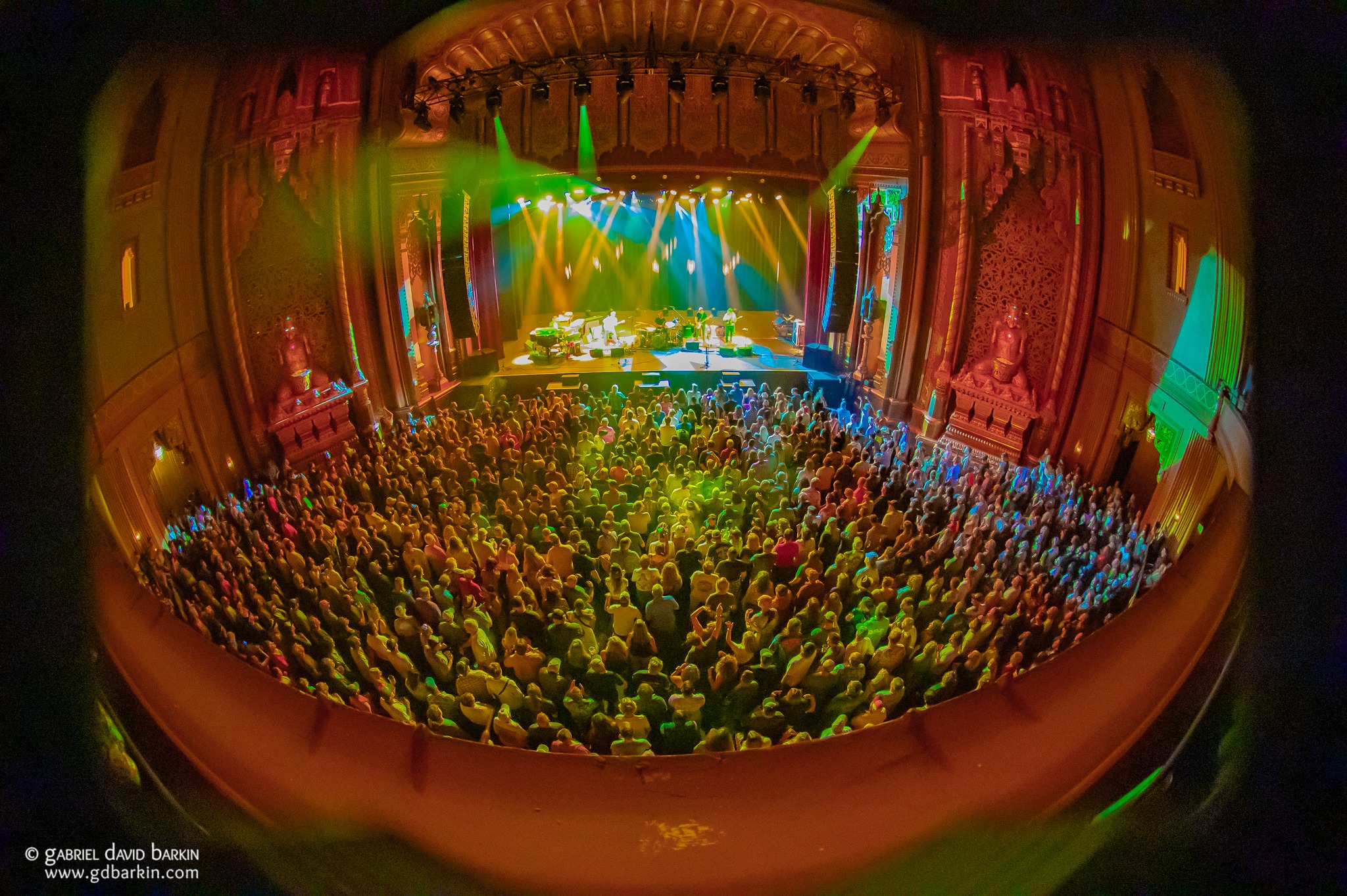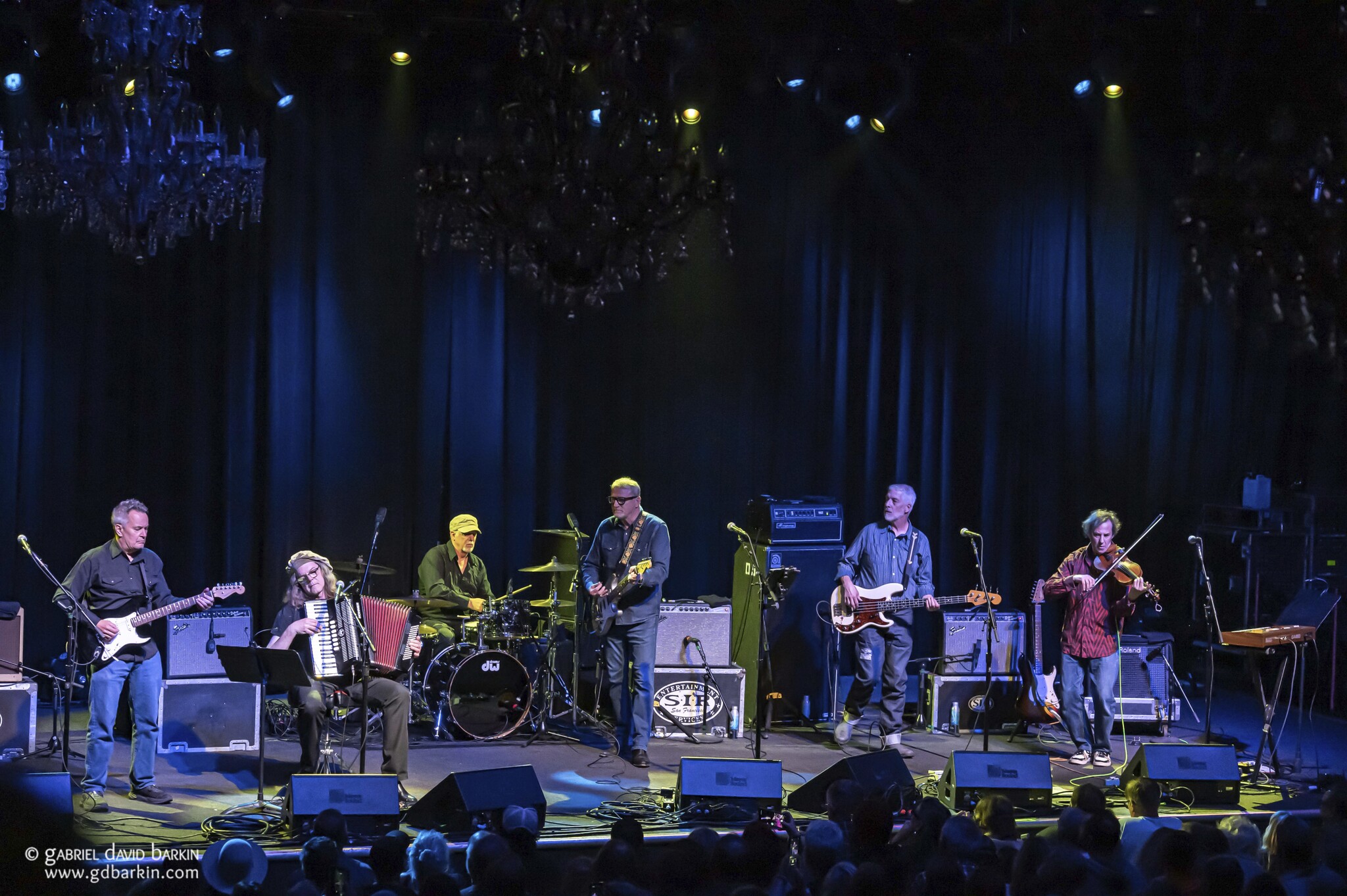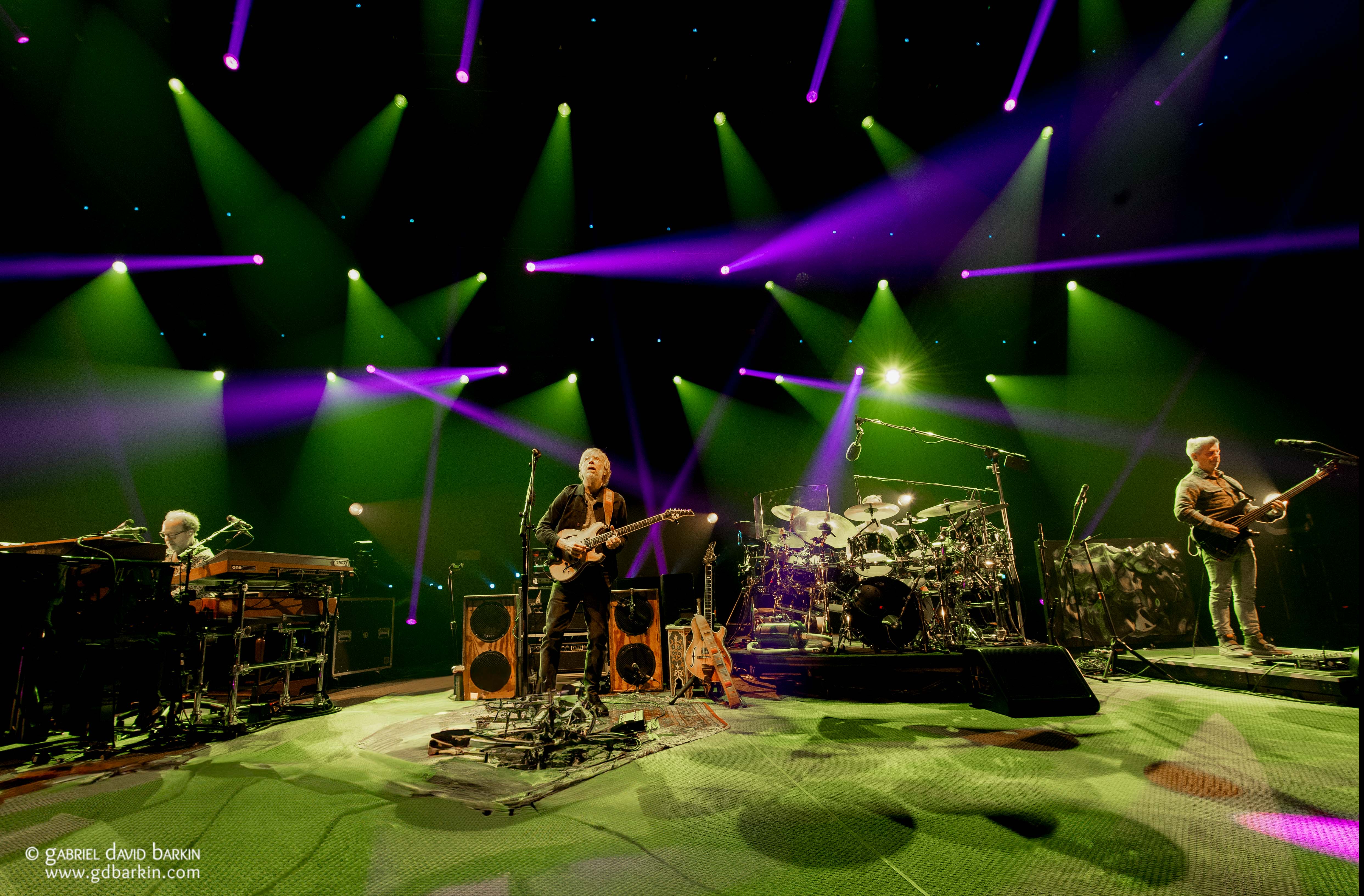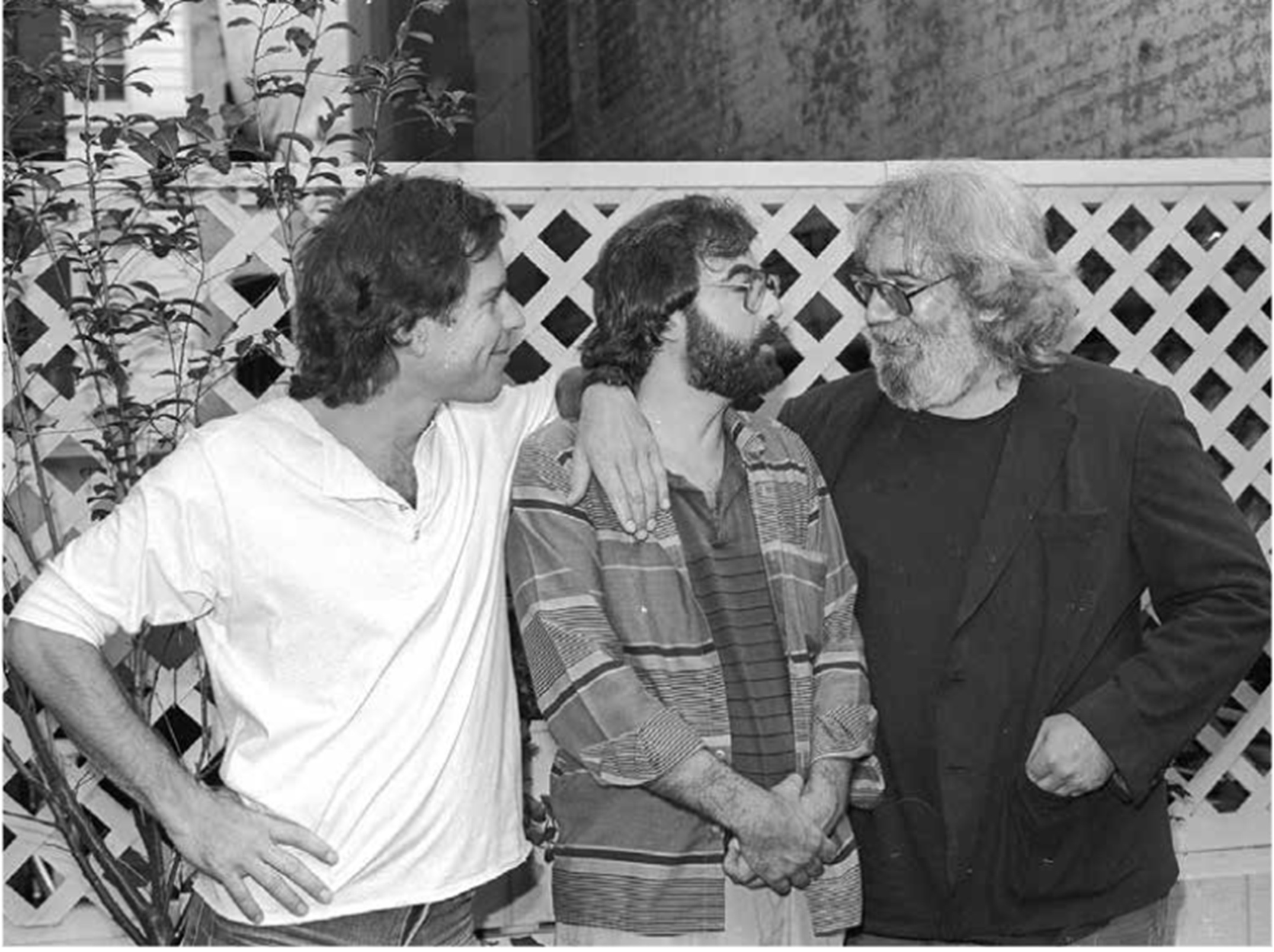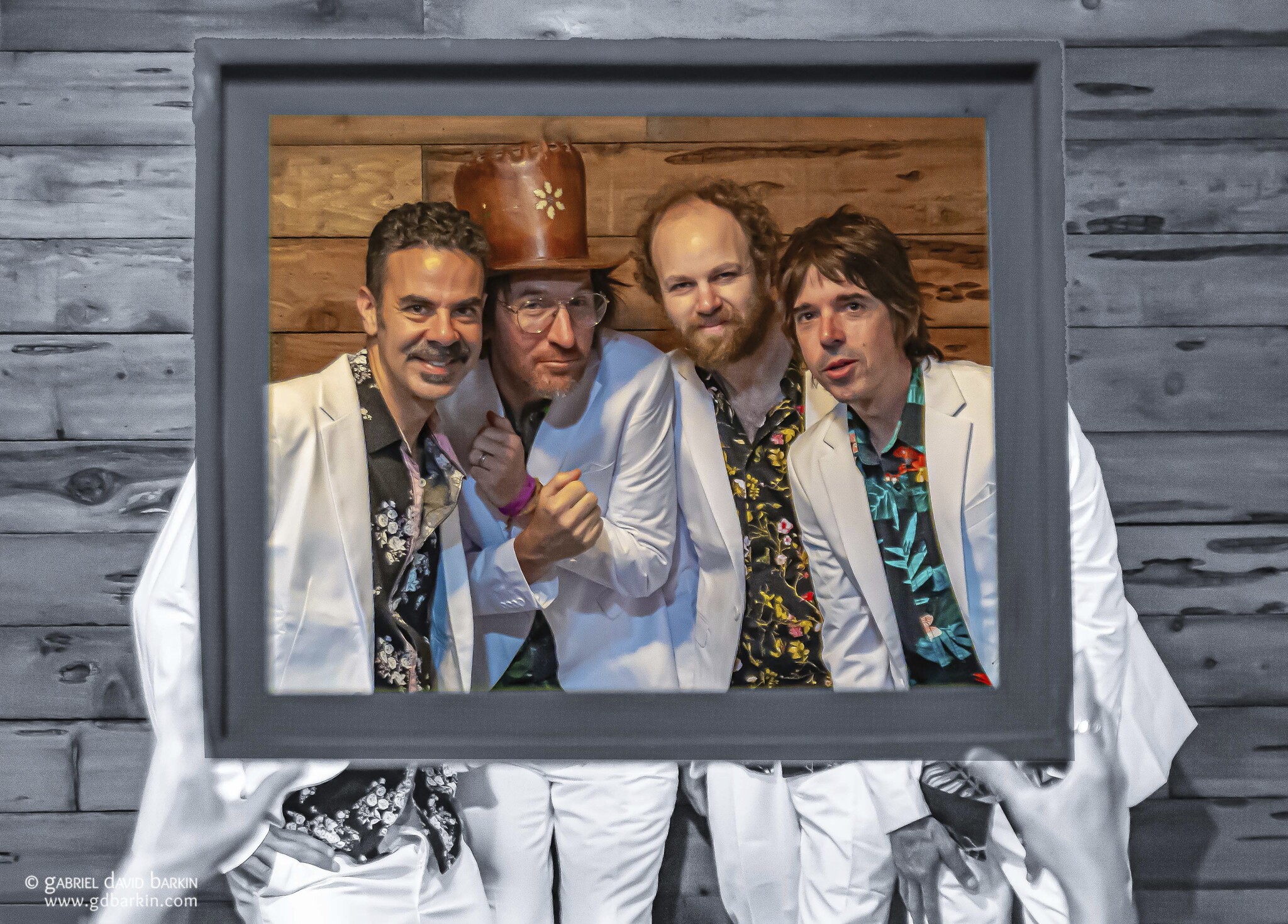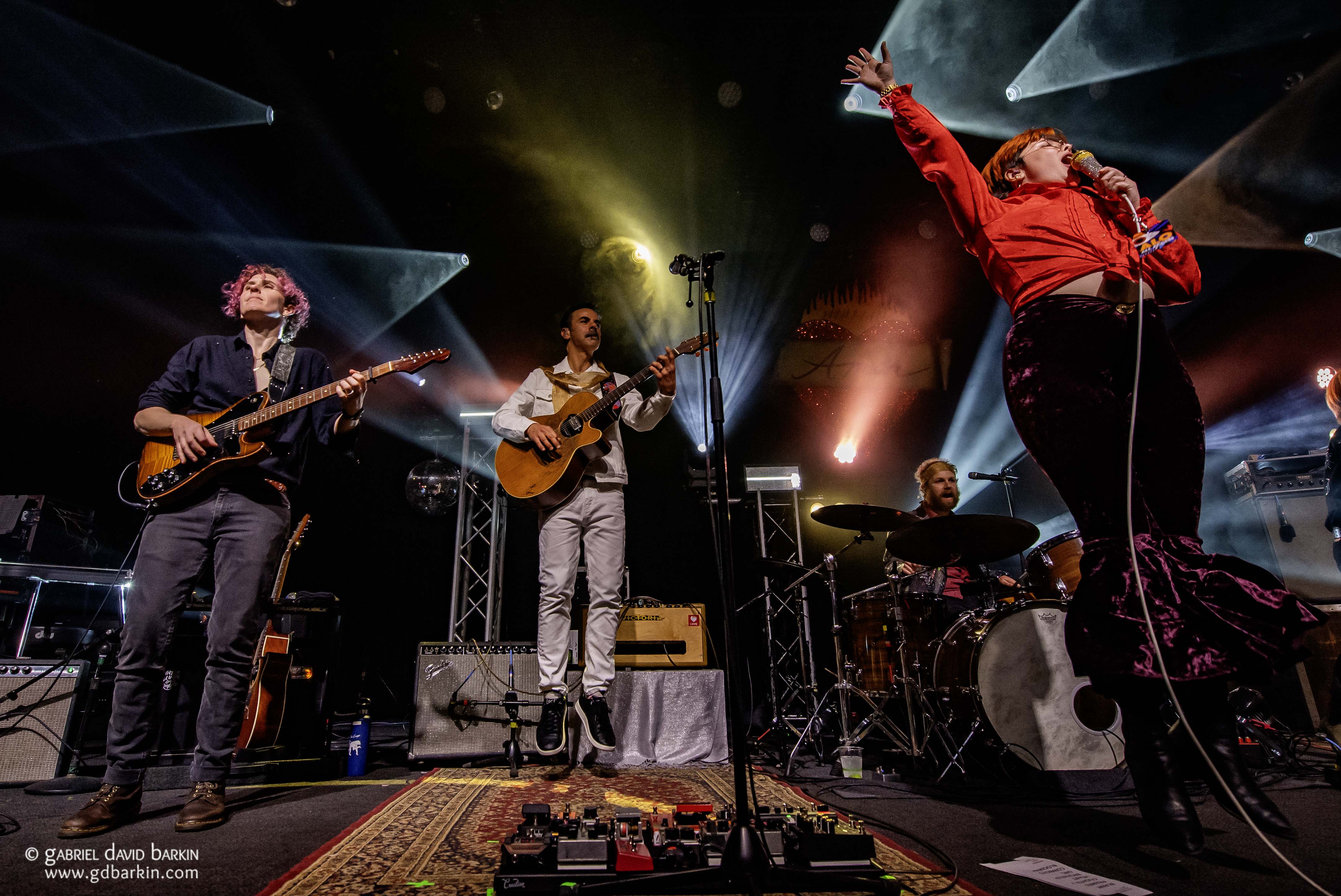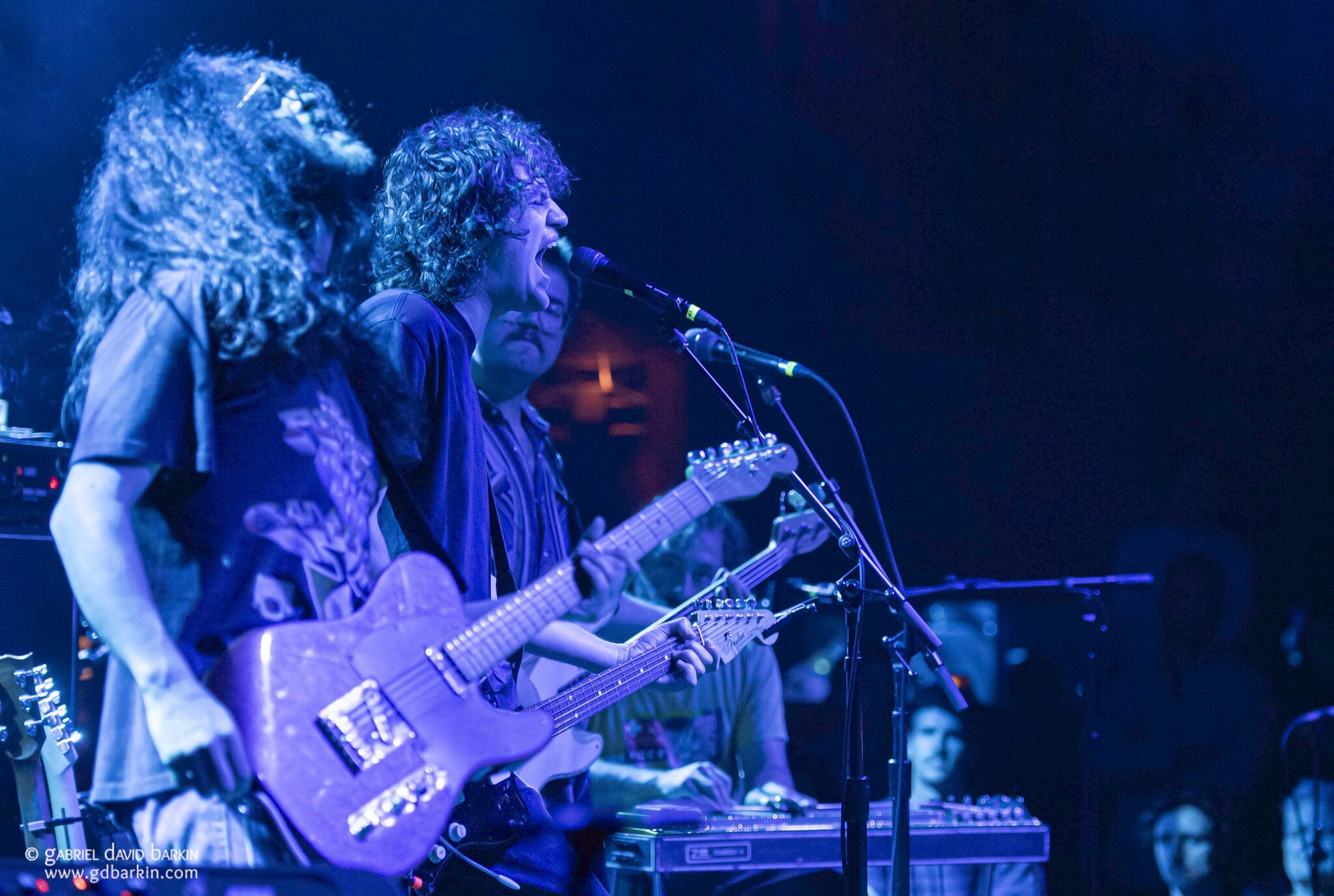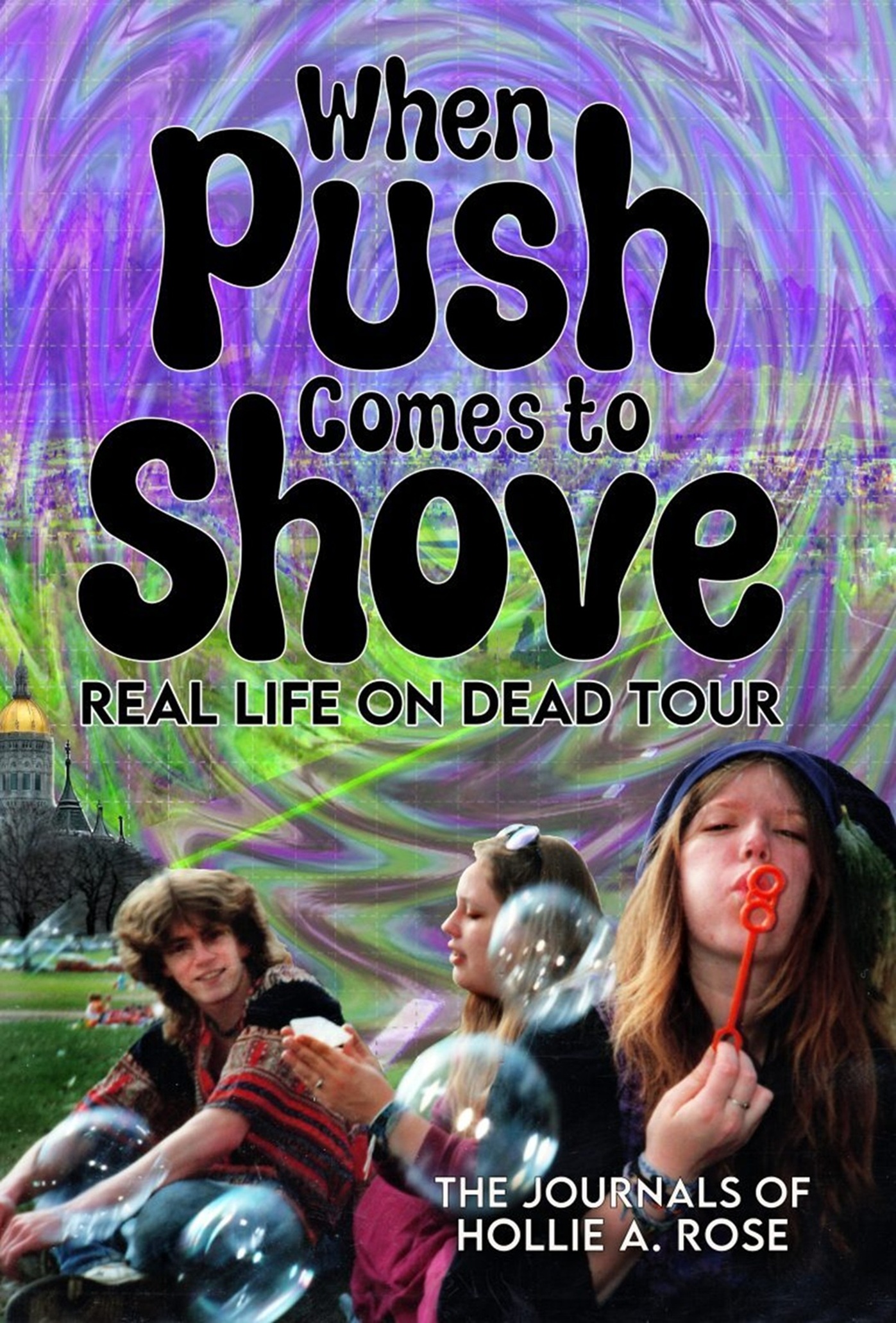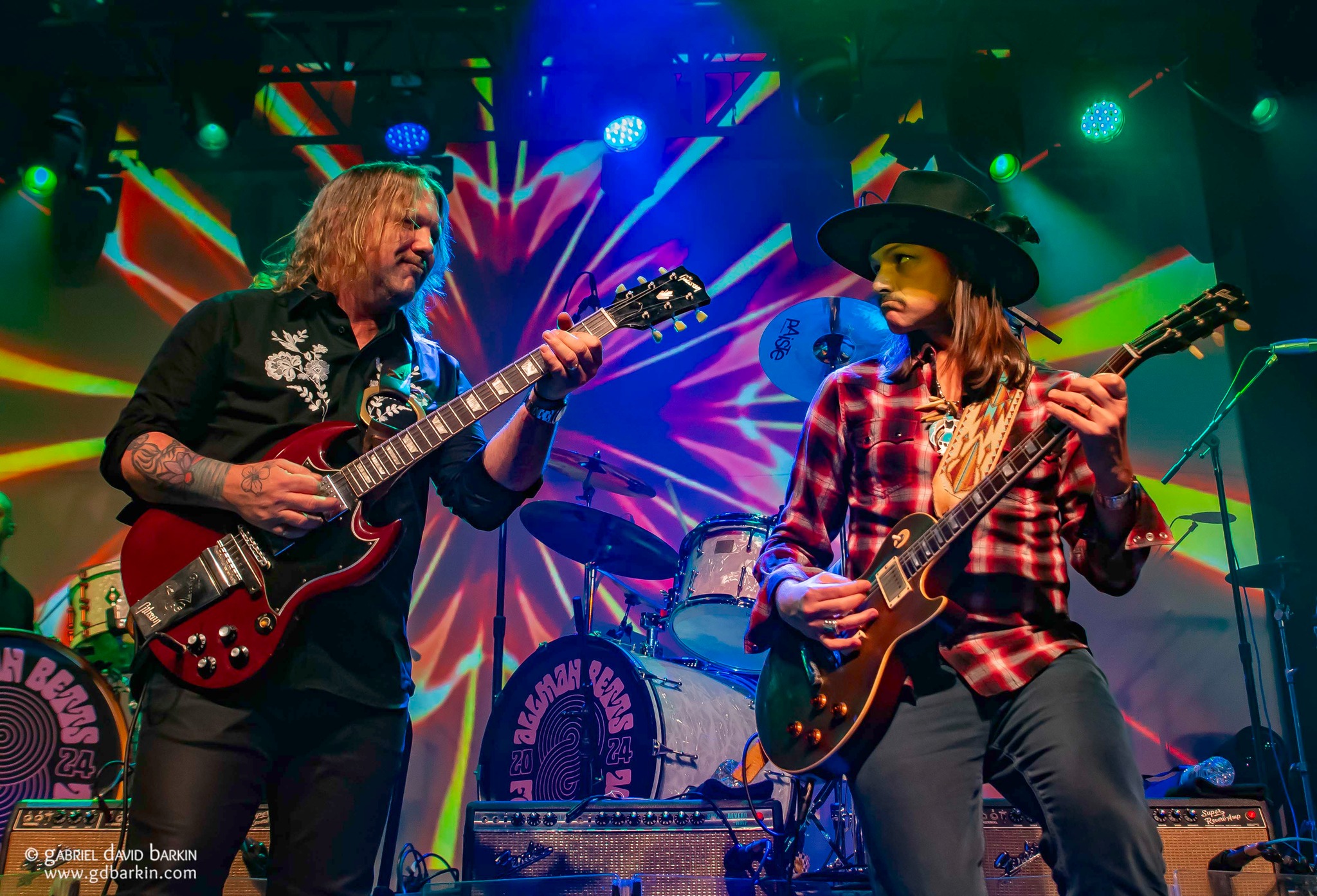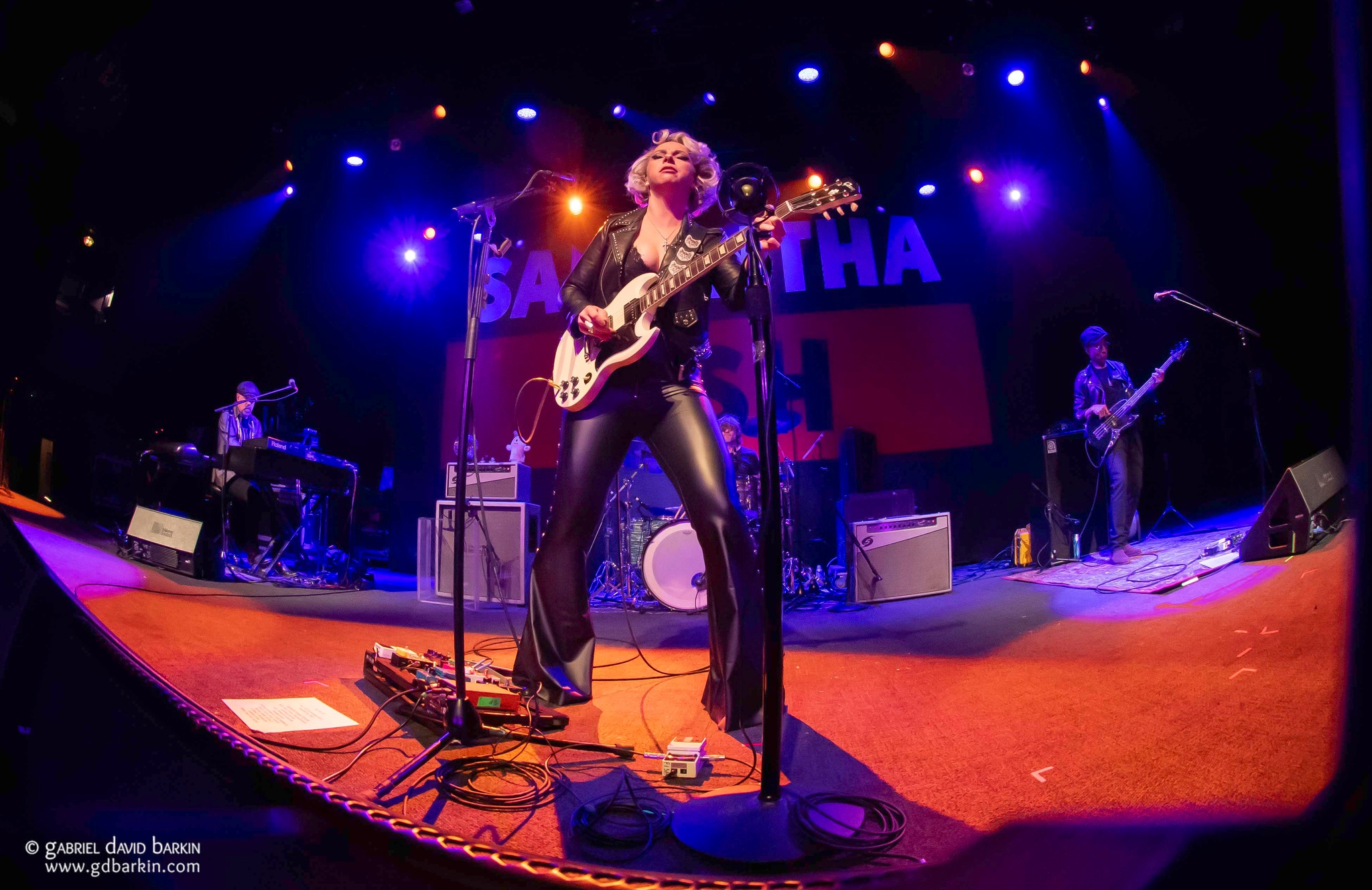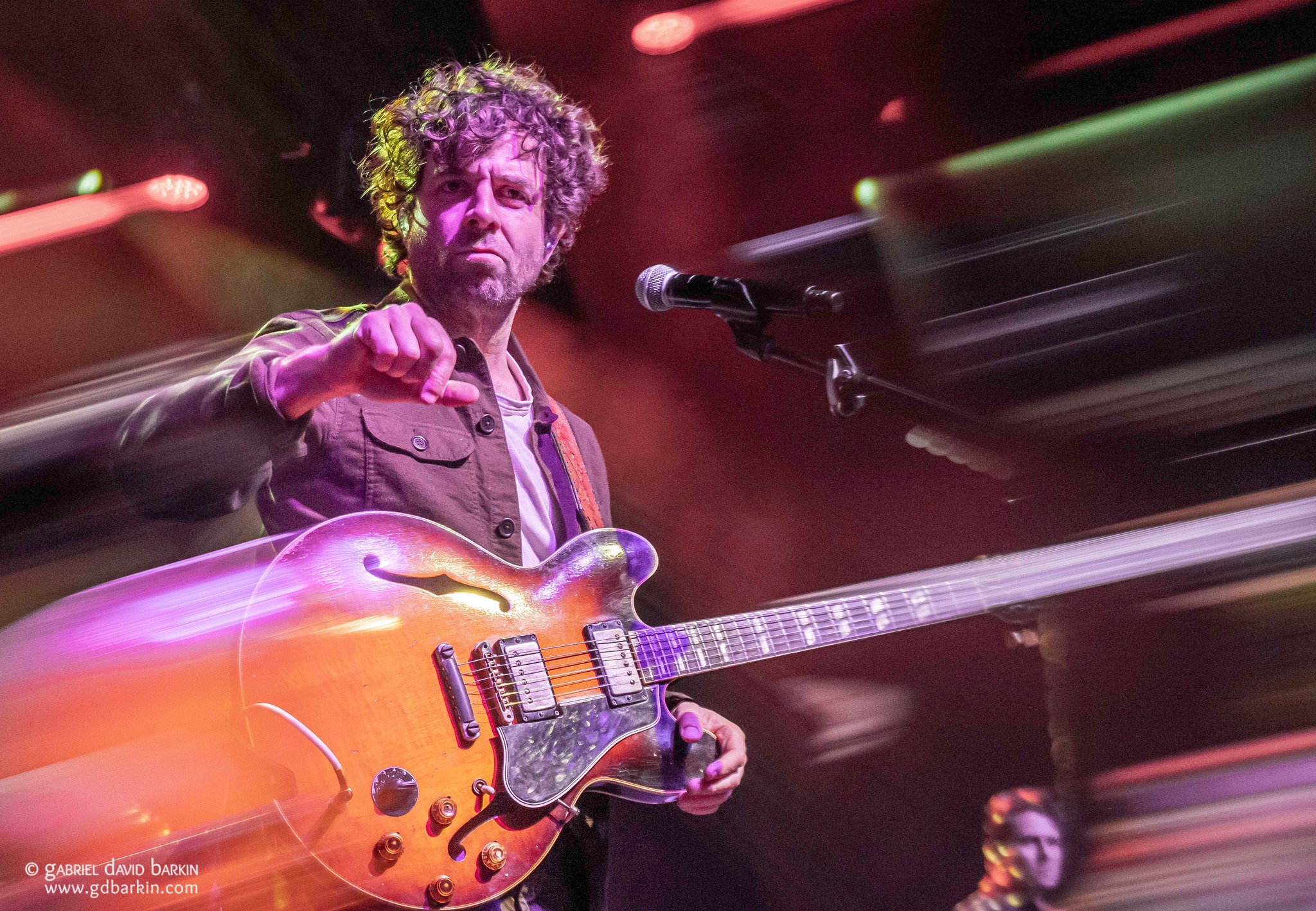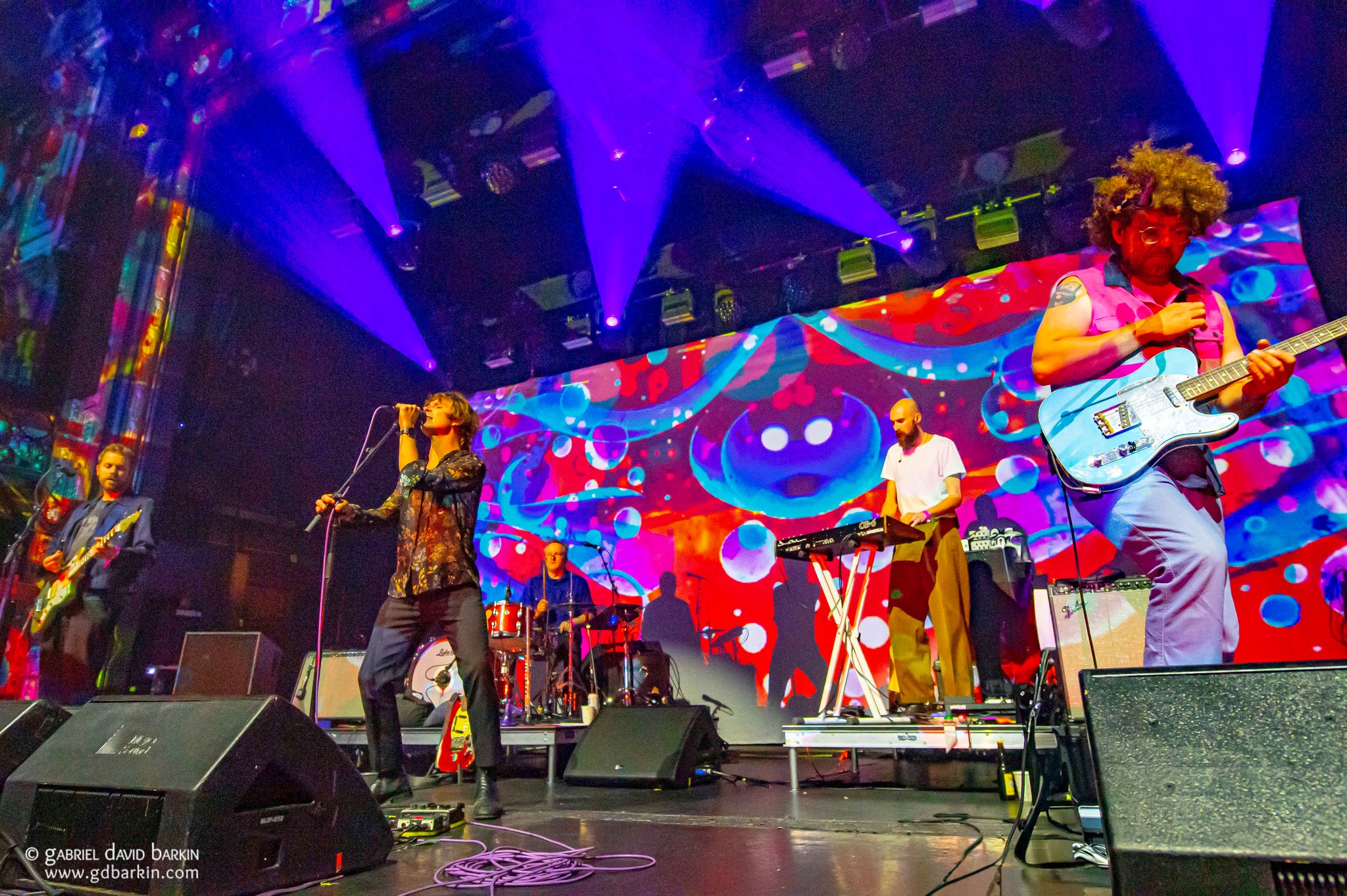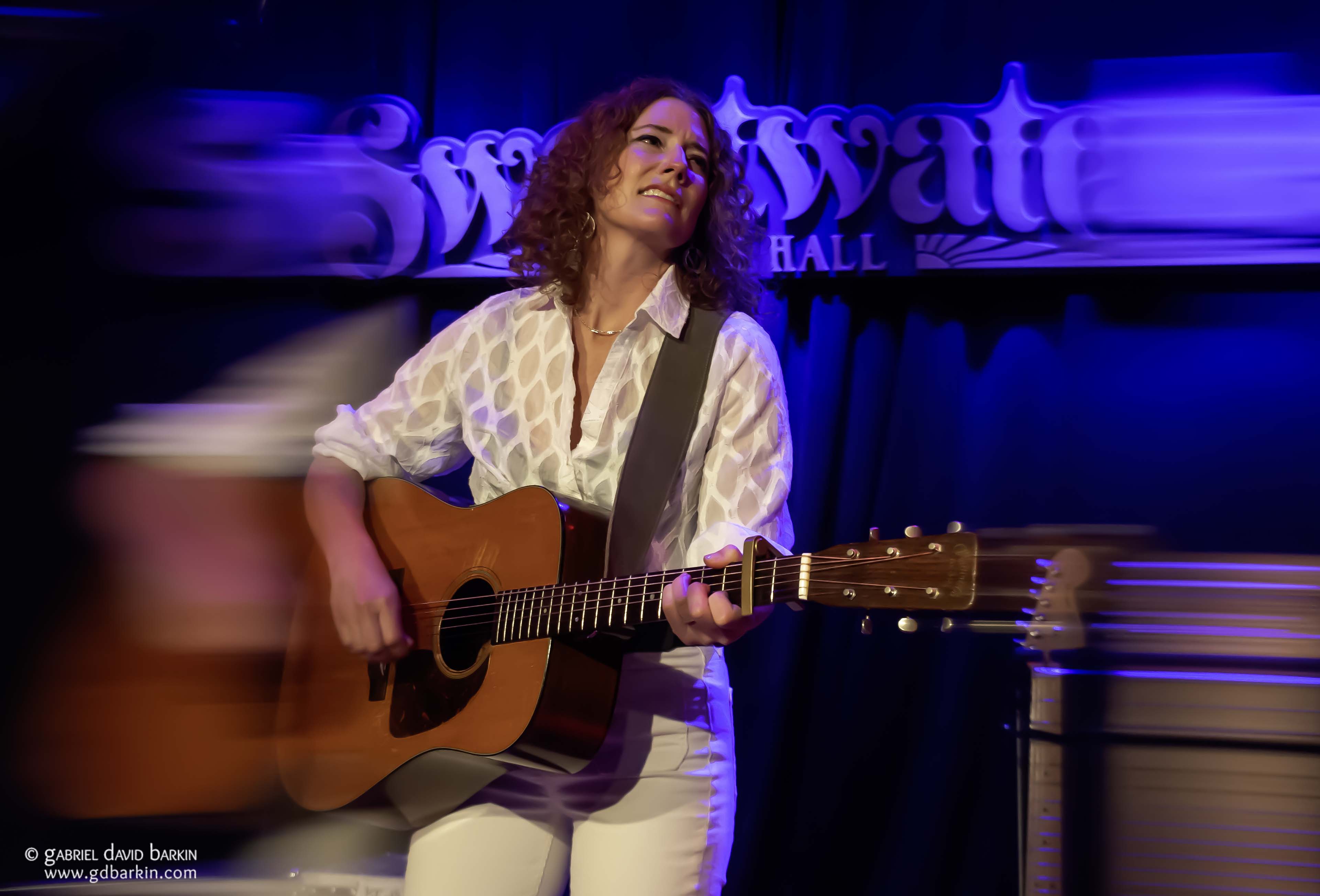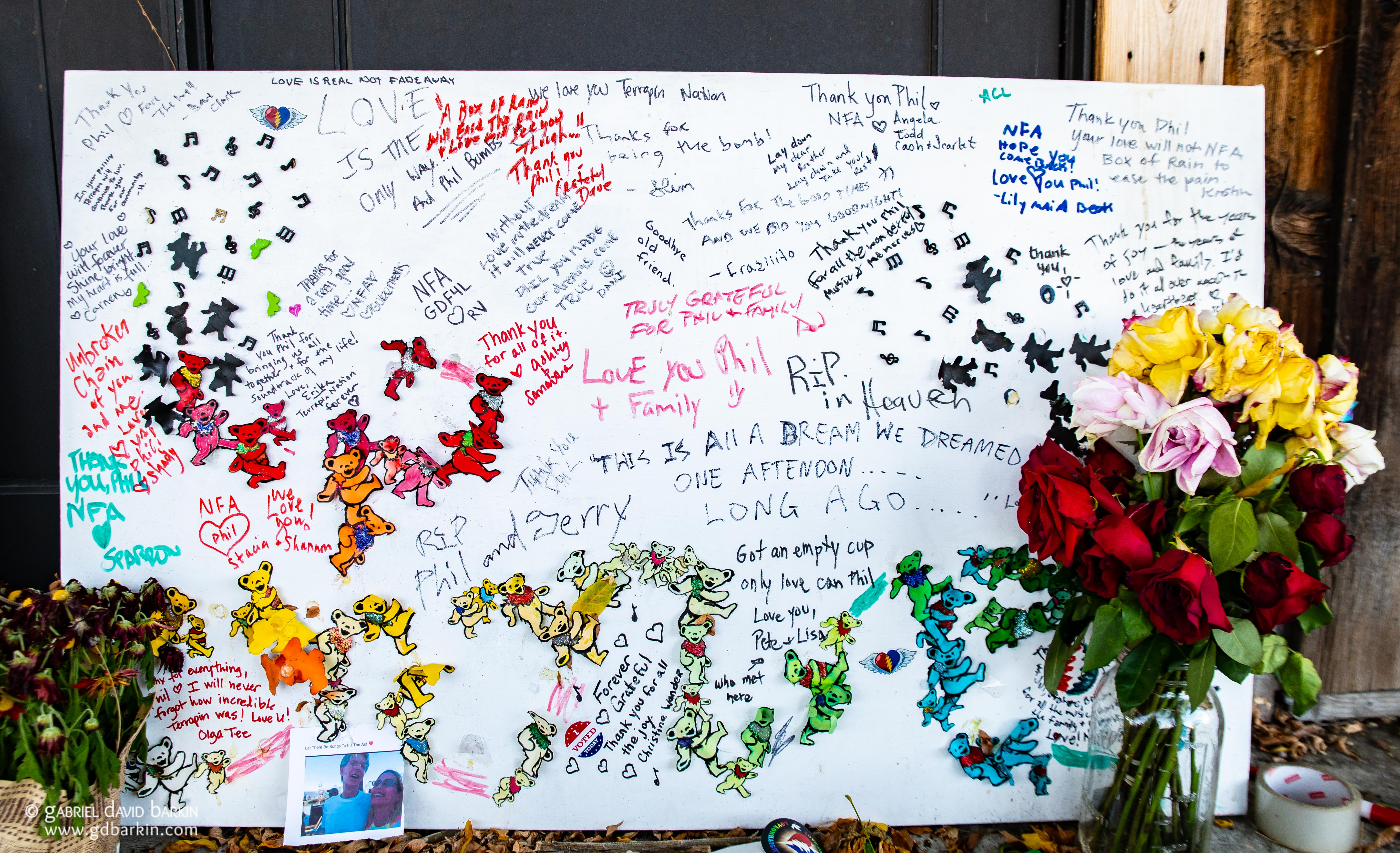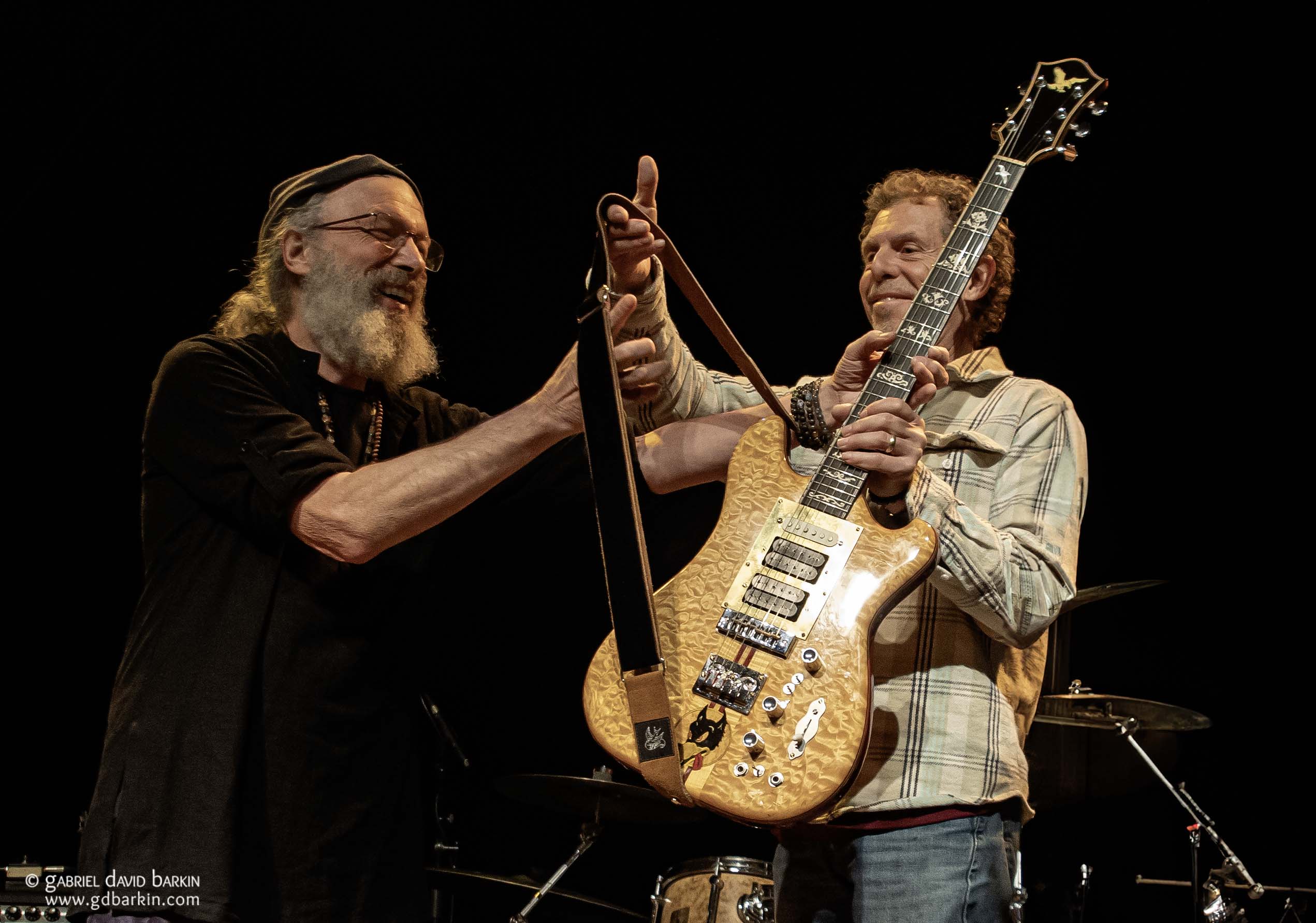“They’re not the best at what they do. They’re the only ones that do what they do.”
Bill Graham’s famous observation in the 1970s about The Grateful Dead was certainly true at the time. In hindsight today, roughly fifty years after Graham’s renowned declaration (it’s difficult to pin down exactly when he said it), both the insinuation of the Dead’s supremacy and the certainty of their exclusivity are debatable.
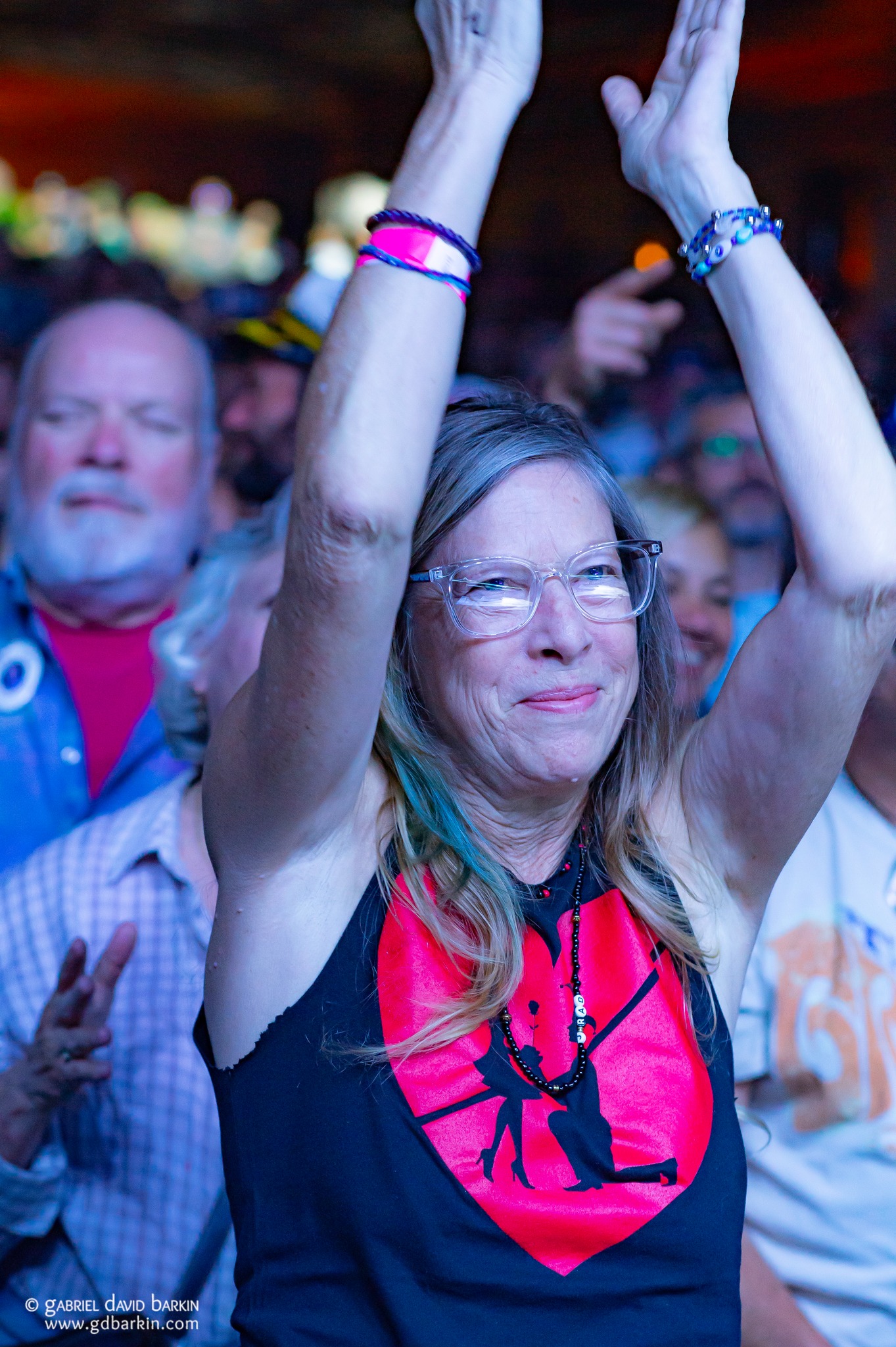
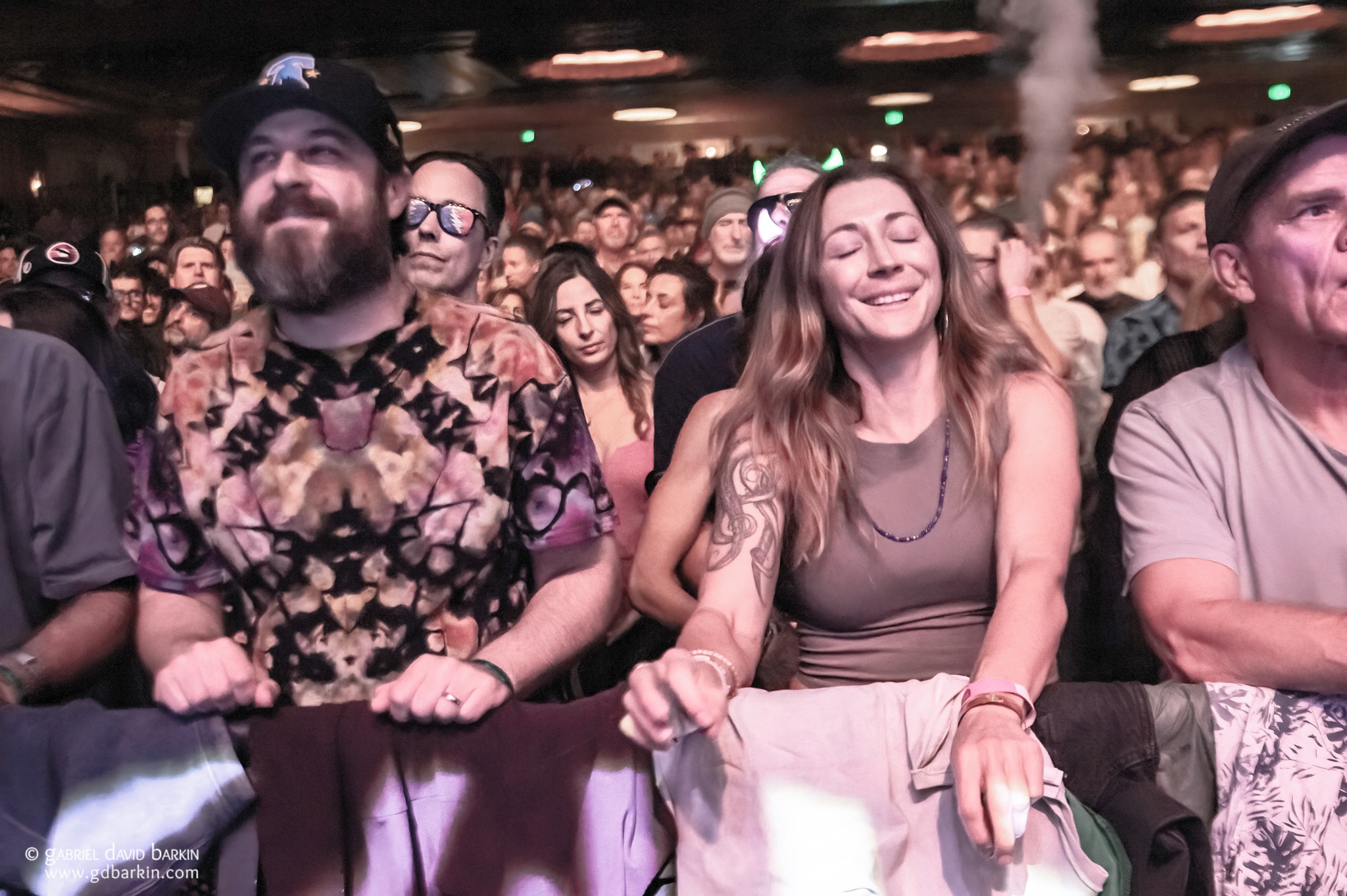
Exhibit A:
There are numerous Facebook discussions in Dead-related groups about whether John Mayer is a better interpreter of the Dead’s catalog than Garcia was. I’m not taking sides.* I’m just reporting that people debate this. (*No, wait, yes I am taking sides. Garcia by a landslide. But props to Mayer; he’s pretty damn good.)
Exhibit B:
It is impossible to count all the Dead cover bands out there. Seriously, I’ve seen three completely different lineups myself in just the last week alone! Depending on how one defines the “what they do” part of Graham’s quote, it’s reasonable to say there is no band in history that has been replicated as much as the Dead.
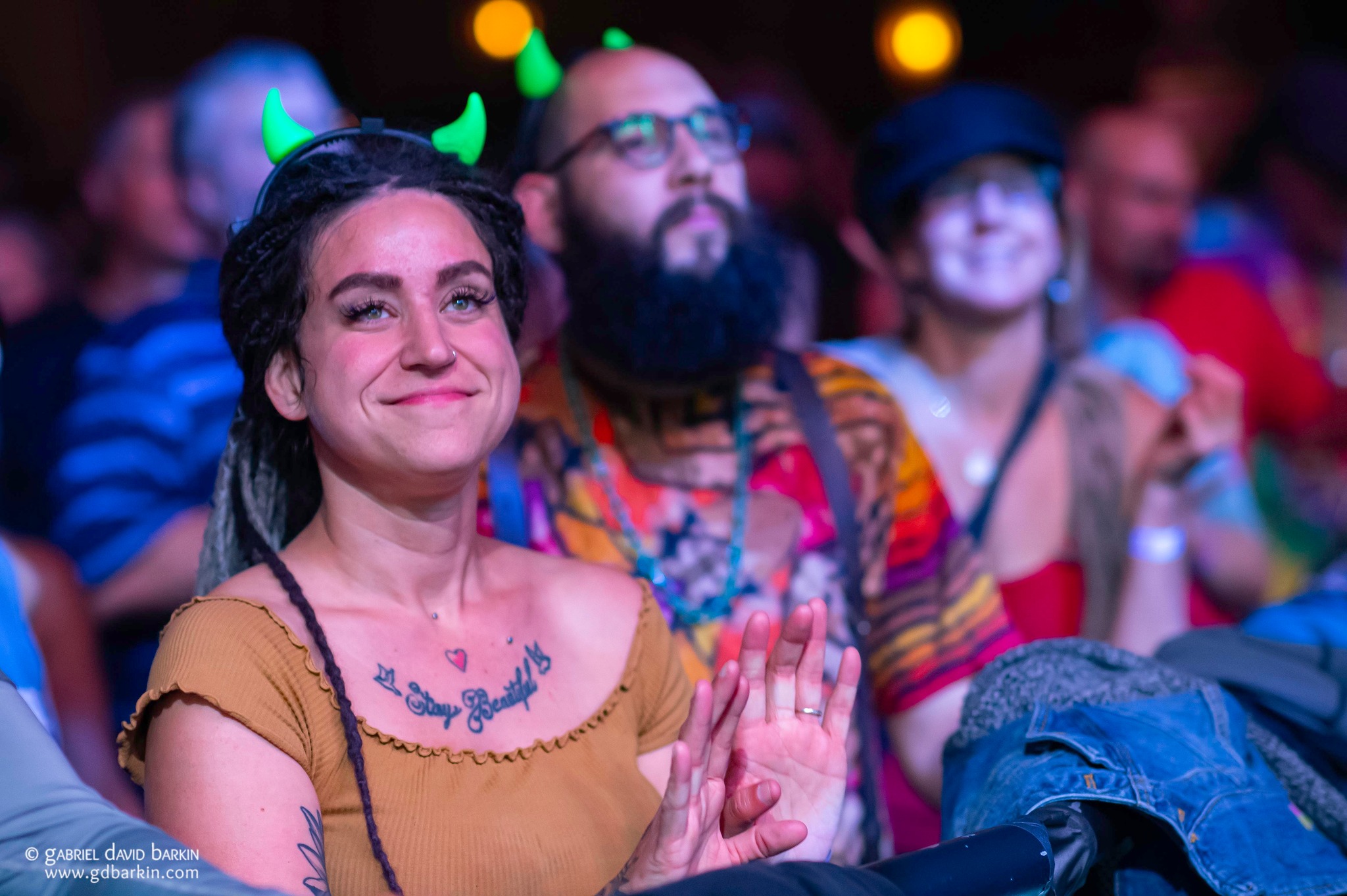
On the other hand, nobody does it exactly like the Dead – and even the different incarnations of The Grateful Dead (the Acid Test and Sixties era with Pigpen years, the Keith and Donna stretch in the 70s, the Brent Mydland and/or Vince Welnick eras, etc.) have their own distinctive flavors. While the many post-Garcia congregations, including The Other Ones, scores of Phil & Friends lineups, Billy and The Kids, and Dead & Co., all have rights to claim direct lineage to the band that Bill Graham lionized, each of these ensembles gave new life to the music of The Grateful Dead. But none of them do exactly what The Grateful Dead did, however you define it.
(Before I continue, I need to take a moment to acknowledge the immense contributions of Phil Lesh to The Grateful Dead, to fans across the U.S. and around the world, to the entire universe of music, and to my life. Heck, I met my wife at a Dead show, so I can truly say Phil changed my life. Phil’s death on the morning between the two shows I am writing about here was shocking and sad, to say the least. That being said, I wrote the first half of this report before I heard the news. More about Lesh later.)
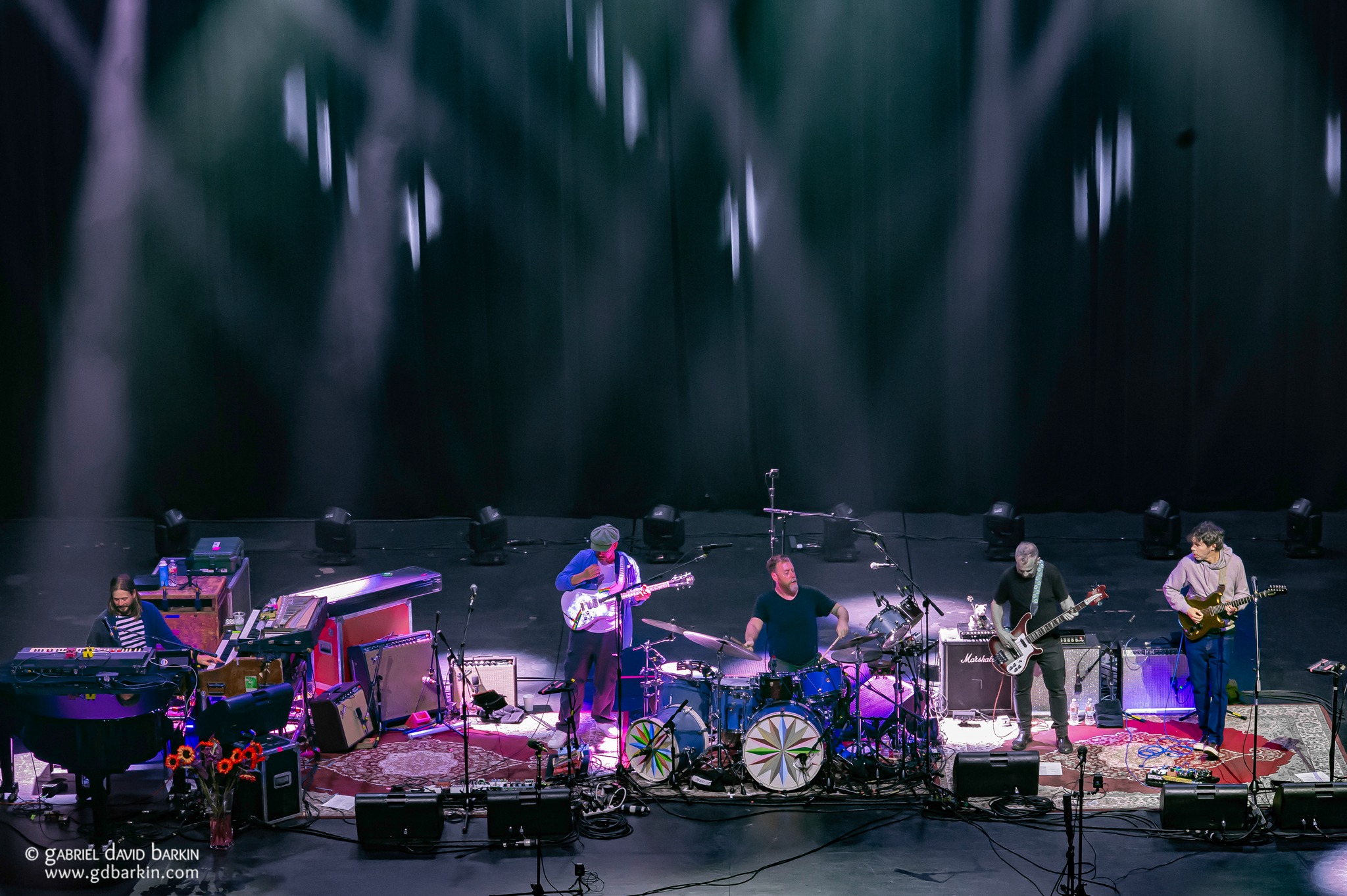
Can we say today that The Grateful Dead are the only ones who ever did what they did? They wrote many of the songs they played, and they played those songs before anyone else did. (Okay, sometimes Robert Hunter played them first.) But lots of bands play those songs now. The Dead had a unique tour scene for decades, complete with parking lots full of Deadheads selling merch to each other and building community across the U.S. That’s part of “what they did.” But Phish has a similar scene, and for that matter, so does Insane Clown Posse. (Google “Juggalos.”) And lots of bands have two drummers and a wicked lead guitar player who improvises long solos while standing on a Persian rug. That’s part of “what the Dead did” too, but it’s hardly unique.
Where does the Grateful Dead end and every other jam band begin?
We don’t need to limit the conversation to jam bands anyway. The Dead’s music has been transformed by numerous performers into reggae, bluegrass, big band jazz, Hawaiian slack key, and probably just about every musical genre out there. Just now, I Googled “Grateful Dead electronica.” Sure enough, there’s a ton of that too out there.
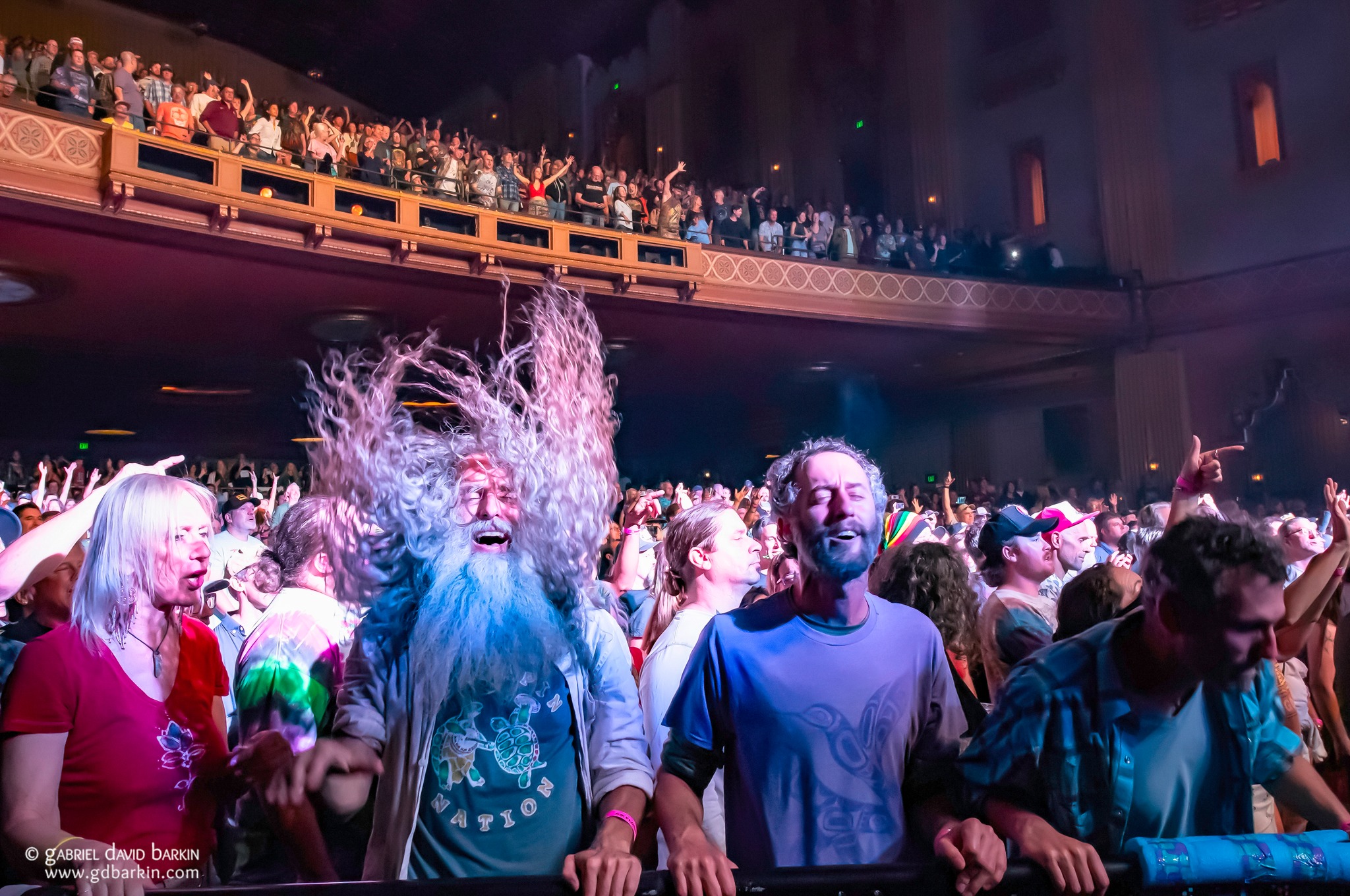
Joe Russo’s Almost Dead (JRAD) is one of the countless bands in the mix. Do they “do” what The Grateful Dead did? Not exactly. But then again, even the Dead in 1990 didn’t “do” what the Dead were doing in 1966.
Whatever JRAD does, they do it really freaking well.
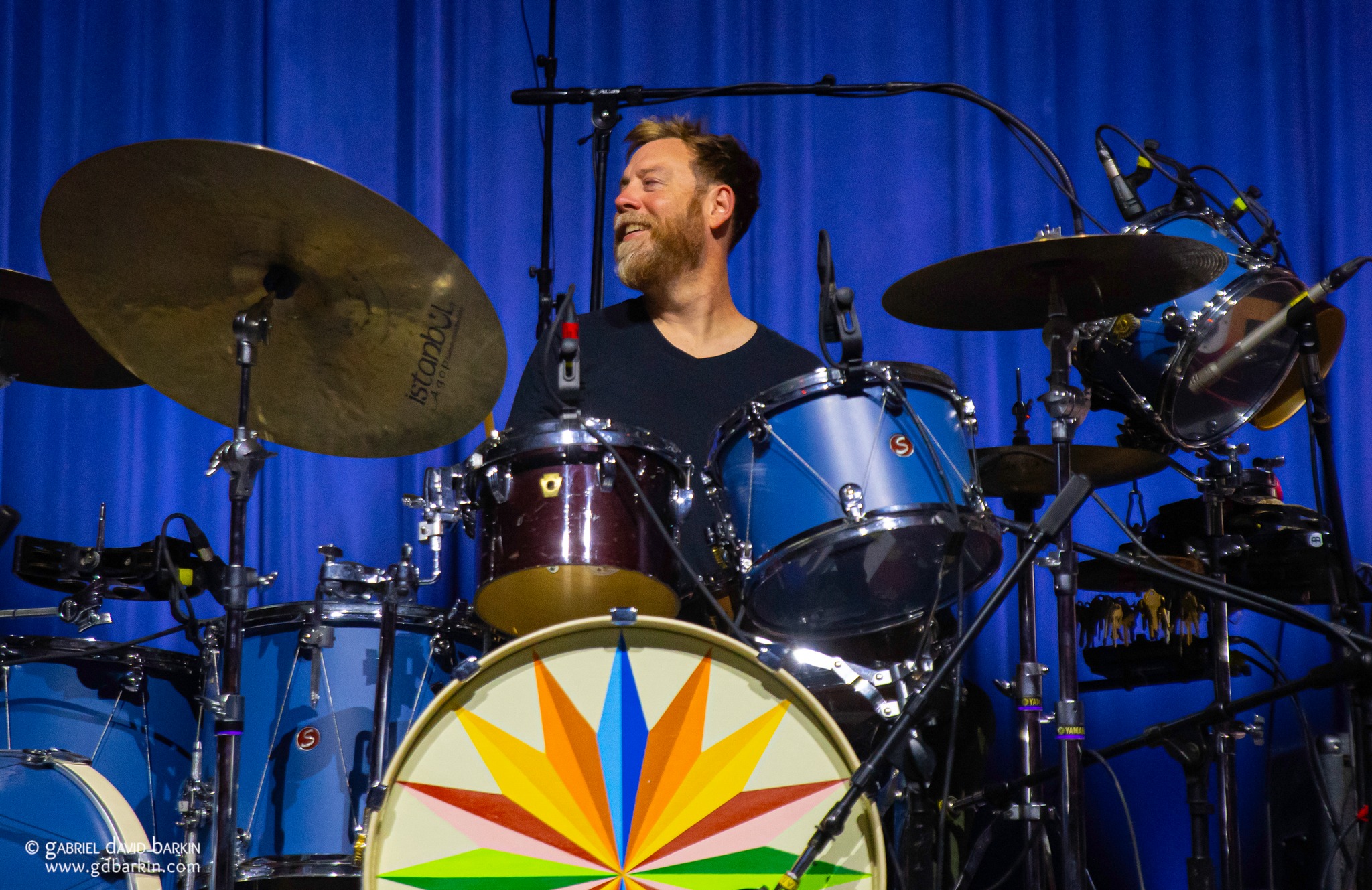
There are so many variations of Dead cover bands out there, something for everyone. Dead & Co., which lies somewhere between an offshoot of the original band and a cover band of sorts, certainly draws the biggest crowds. Those crowds include a huge number of younger never-saw-Jerry fans (“NSJs”), including a ton of “BADJ’ERS.” (Those are young’uns “Born After the Death of Jerry” in 1995. That acronym is my own invention, thank you very much.) On the flip side, you’ve got local bands across the nation playing weekly Grateful Dead nights in bars and clubs. Much lower entry fees, smaller crowds, killer shredders. Something for everyone.
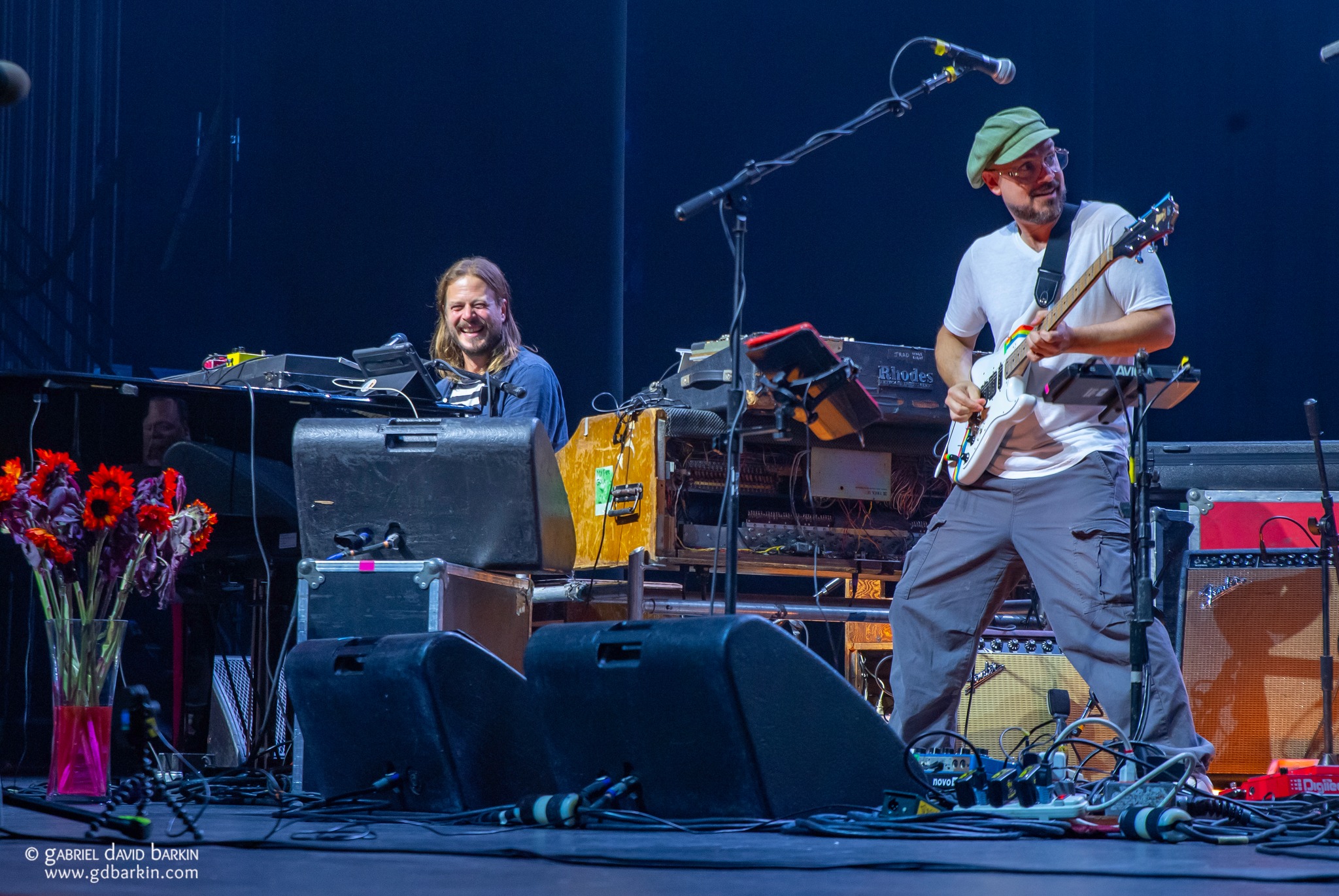
Other than shows featuring Bob Weir or Phil Lesh, JRAD almost certainly draws the biggest crowds among all the bands playing mostly/all Grateful Dead music. Dark Star Orchestra is the only other band in the running. For JRAD, that’s most likely due to a combination of factors:
- All five members of JRAD (Joe Russo, drums and vocals; Tom Hamilton, guitar and vocals; Scott Metzger, guitar and vocals; Dave Dreiwitz, bass; and Marco Benevento, keyboards, piano, and vocals) are off-the-hook amazeballs musicians with distinctive chops.
- They don’t just recreate the sound of the Dead like Dark Star Orchestra (who certainly do a kick-ass job in that department). JRAD finds their own way down the path. Their space jams have a unique taste unlike The Grateful Dead, and none of the instrumentalists mirror the licks nor the tone of Garcia, Weir, Lesh, Kreutzmann, Hart, or the myriad Dead keyboardists.
- Did I mention that they totally shred?!
- For what it’s worth: at least some people I know, including one uber-close family member of mine, think Marco Benevento is freakin’ hot. (I rarely mention people’s looks when I write about music, but in this case, I’ll make an exception. He’s a darn good-lookin’ dude.)
- In the world of debates about the world of The Grateful Dead that I touched on above, some folks argue that Dead & Co. slow down some of their songs too much and often don’t deliver the right punch. (Don’t hate me for writing that, I’m just a humble reporter.) For many Deadheads, JRAD amps up the energy and sticks the landing with more oomph and pizazz.
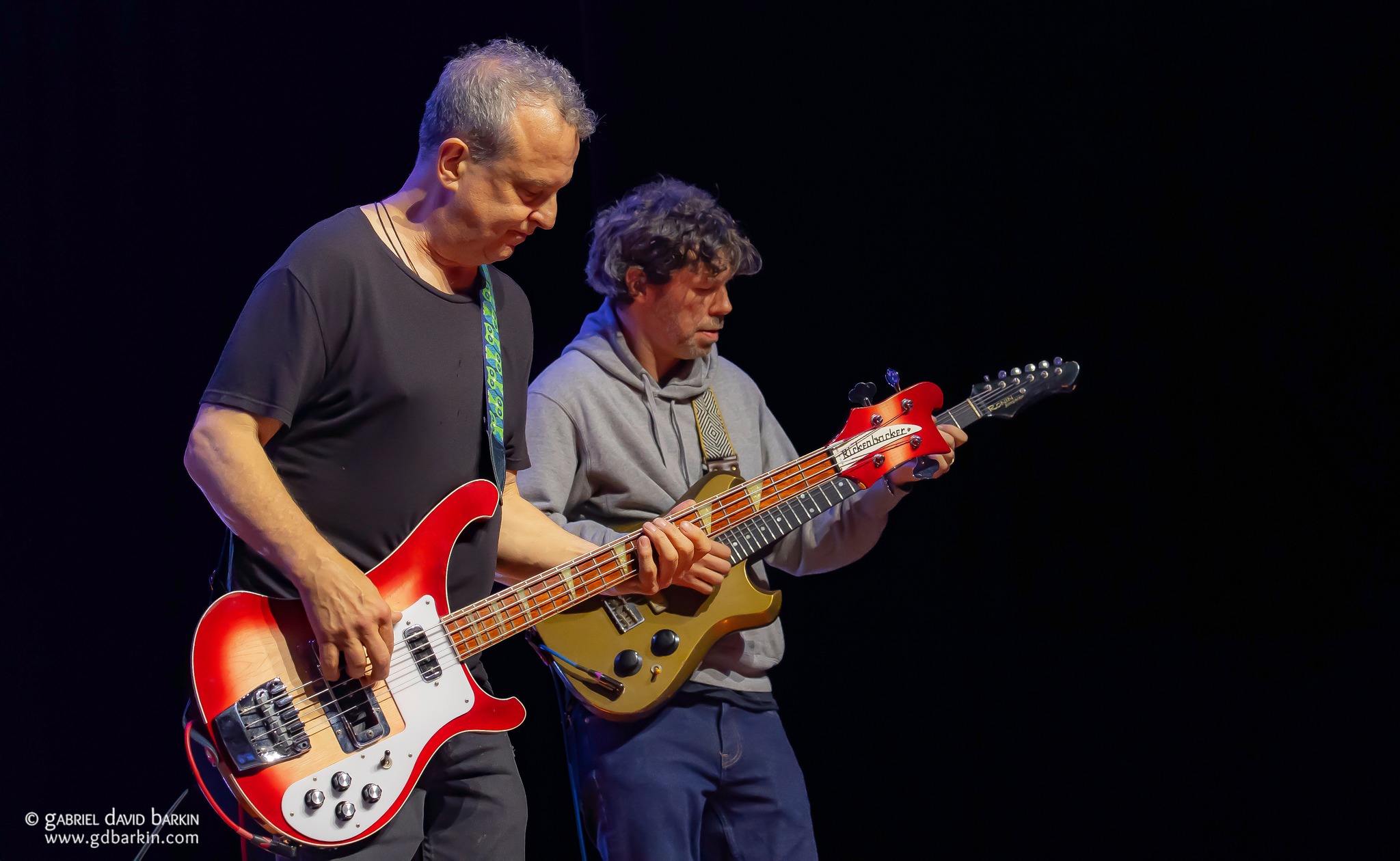
Not unlike the band they tacitly emulate, JRAD isn’t the best at what they do; they’re the only ones who do what they do.
At the core of JRAD, you’ll find longtime collaborators Joe Russo and Marco Benevento. They met in Boston in the late 90s and formed the Benevento/Russo Duo in the early 2000s. The Duo was known for playing an avant-garde fusion of jazz and rock that was edgy, equally exquisite and brash, and often brilliant. I remember being blown away by a Radiohead cover they played when I first saw them at the High Sierra Music Festival in 2004.
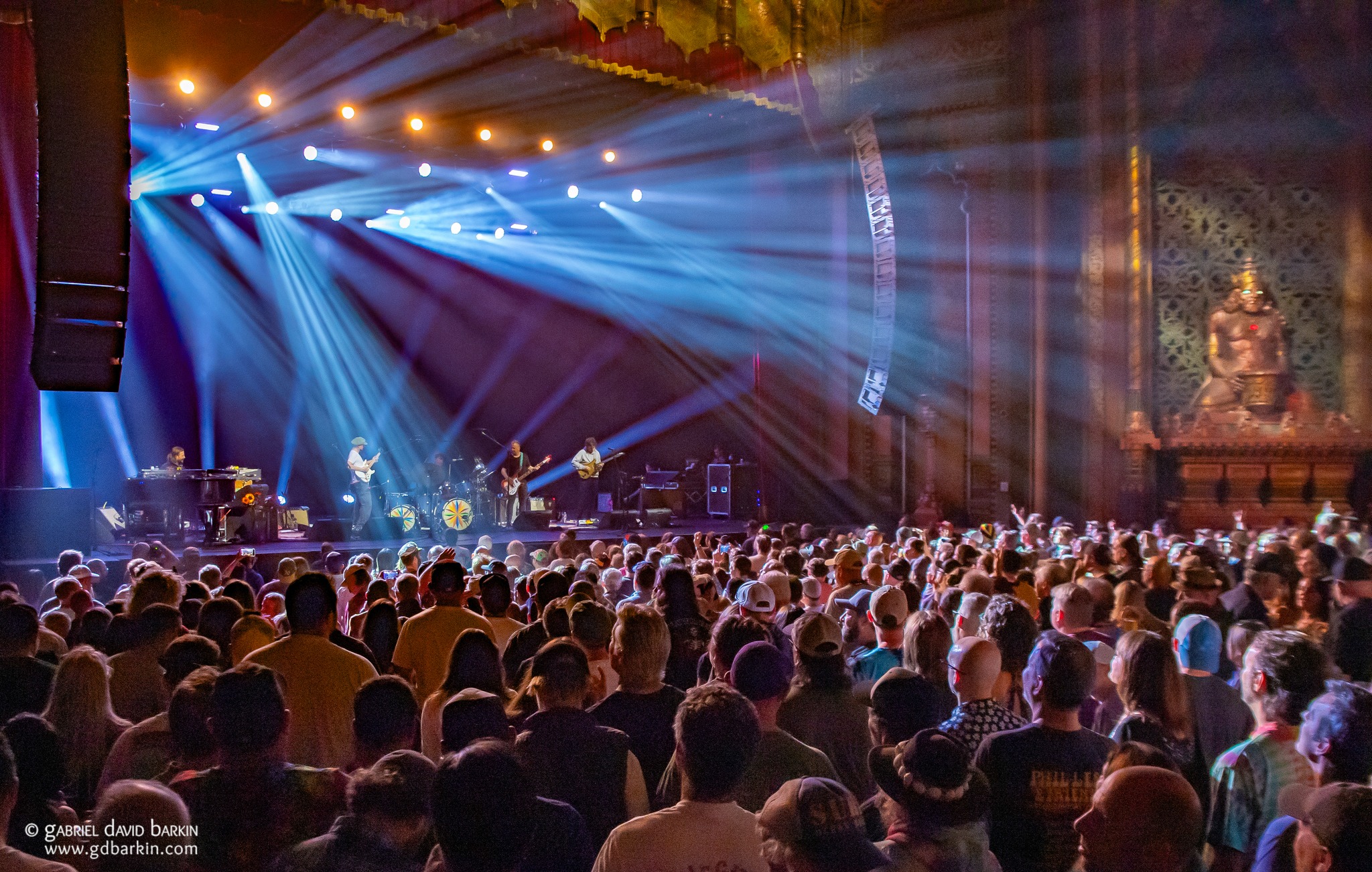
In the early Aughts, the Duo formed Bustle In Your Hedgerow, a Led Zeppelin instrumental cover band, with Metzger and Dreiwitz (who had a ton of notoriety and experience as the bass player for Ween). Their recast versions of Zeppelin, one of my absolute faves, significantly rocked my world. (Please oh please, JRAD, do a Bustle tour!) Seriously, anyone who saw those shows knew these guys had knock-your-socks-off chops.
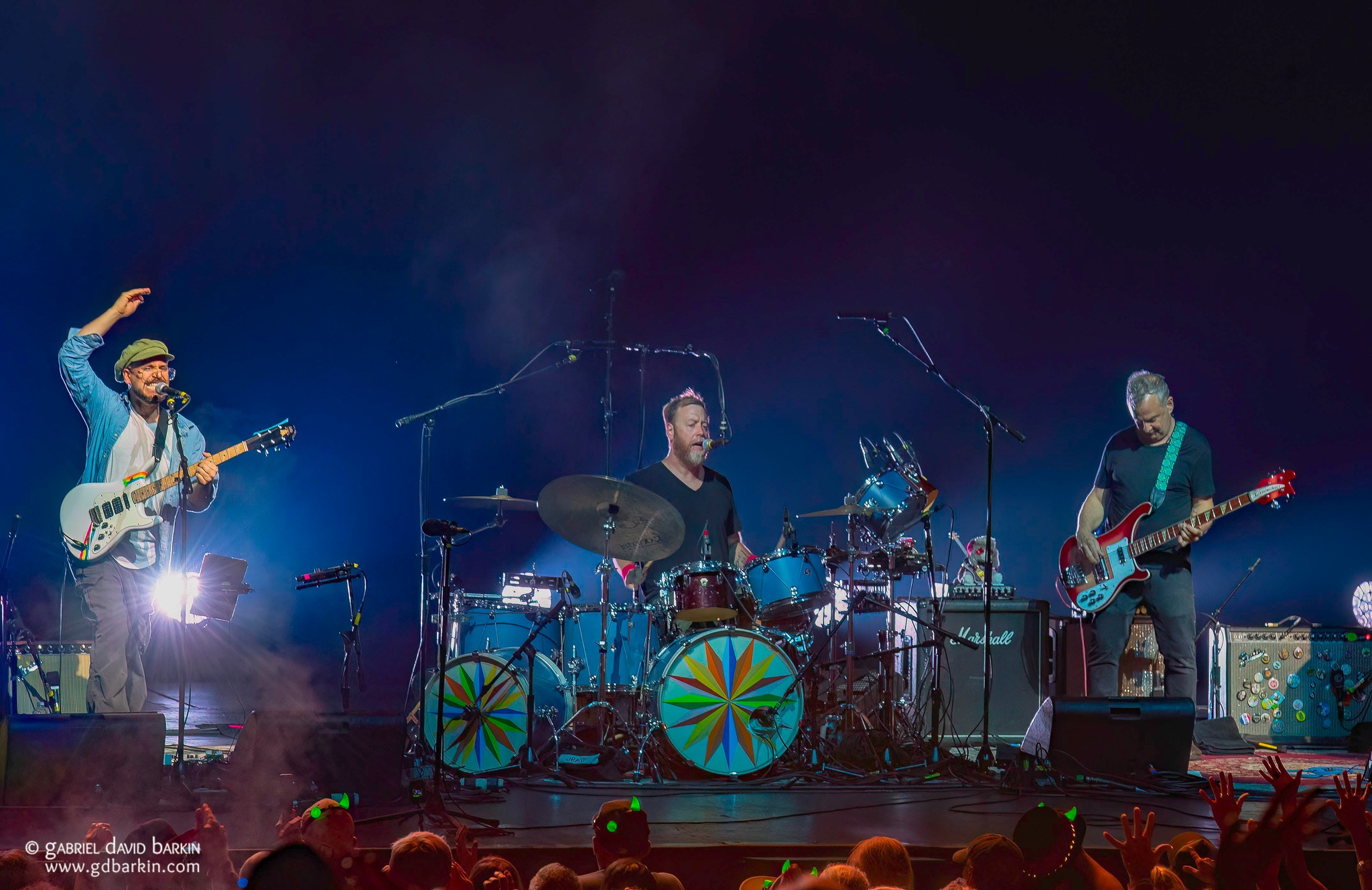
Later, Russo joined with Weir and Lesh in Furthur, initially playing drums alongside Jay Lane and then backing the band solo when Lane left to rejoin Primus for a spell. That was enough to give Russo a line of credit with Deadheads that would carry over into a ton of attention for JRAD.
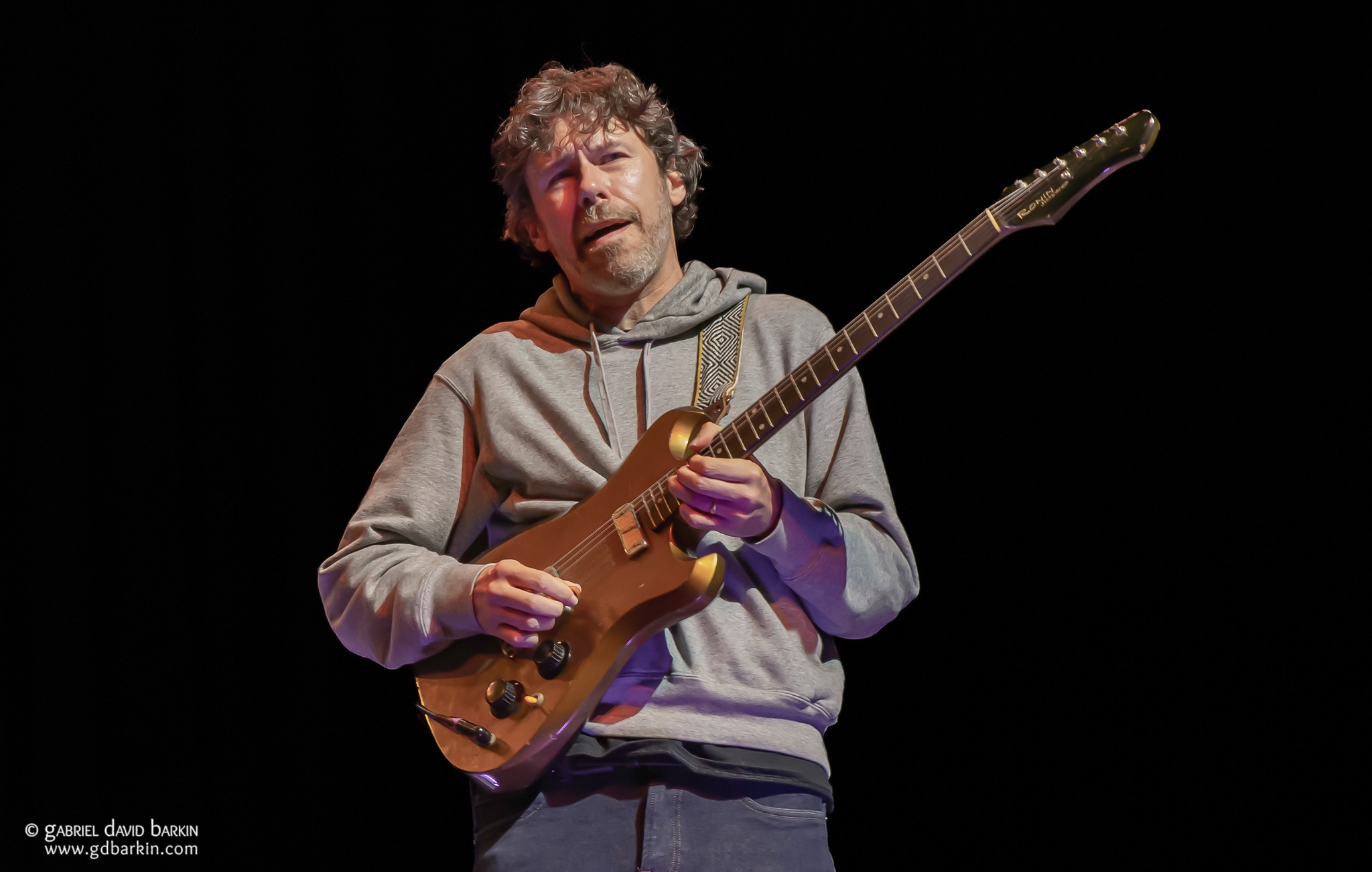
Allegedly, JRAD was born when Bustle In Your Hedgerow was booked for a show and the band was asked instead to play Dead songs. Hamilton was added to the mix for the night, the band quickly came up with a name – and the rest is history-in-progress.
All of which brings us to Thursday and Friday night at the Fox Theater in Oakland. (Fun fact: Shows at the Fox are produced by local Bay Area Another Planet Entertainment, which is more or less the child of Bill Graham Presents. So in a way, the ghost of Uncle Bobo was in the house.)
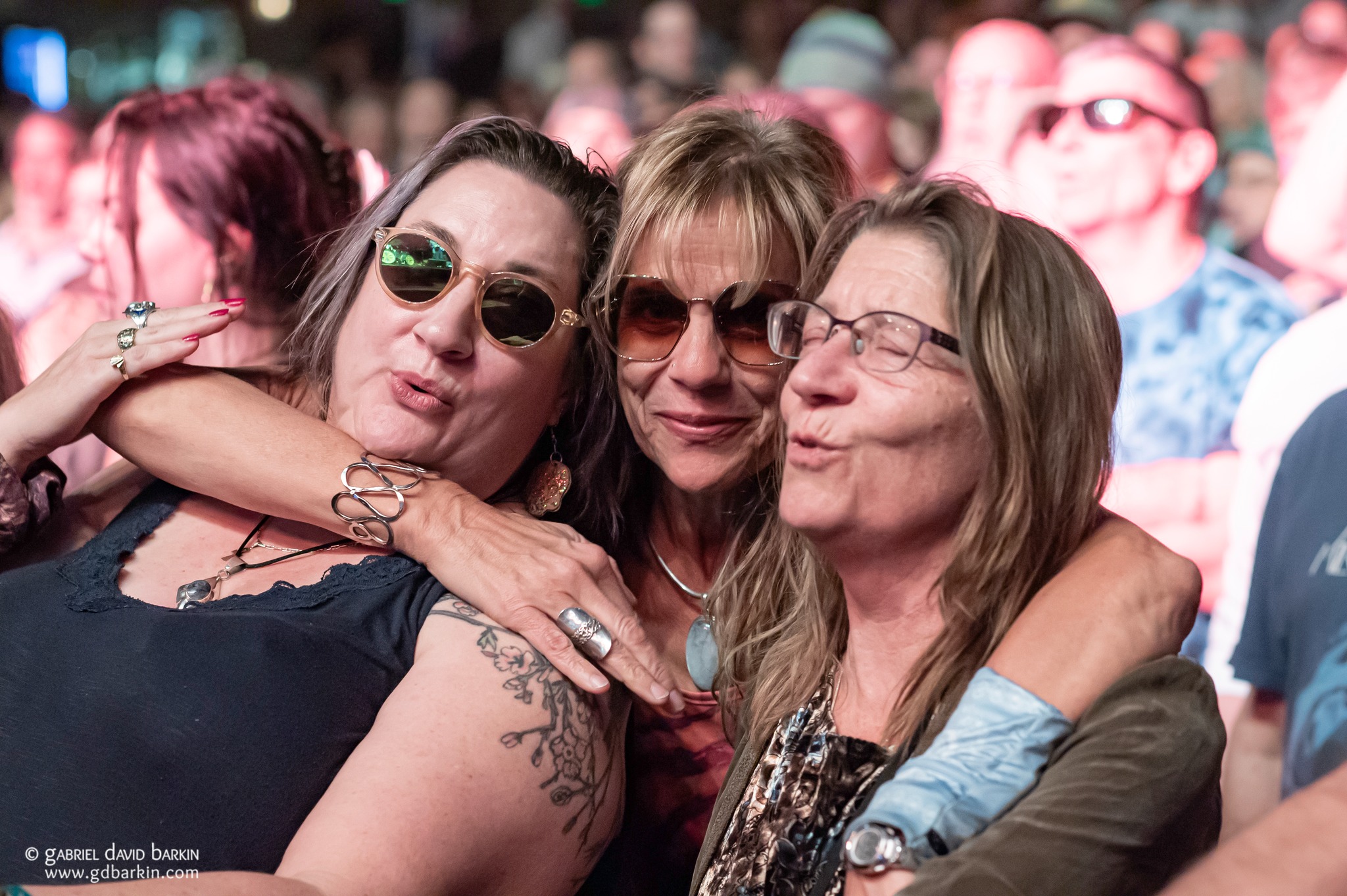
Thursday’s show was not quite sold out, but the house had enough bodies in it to feel kinda-maybe-sorta-almost full. My impression of that would change on Friday.
JRAD kicked it off with an instrumental, mellow take on Latin groove with very little percussion, just Russo on a shaker at first. The vibe had hints of Santana’s “Soul Sacrifice.” That vibe soon morphed into “Jack-A-Roe.”
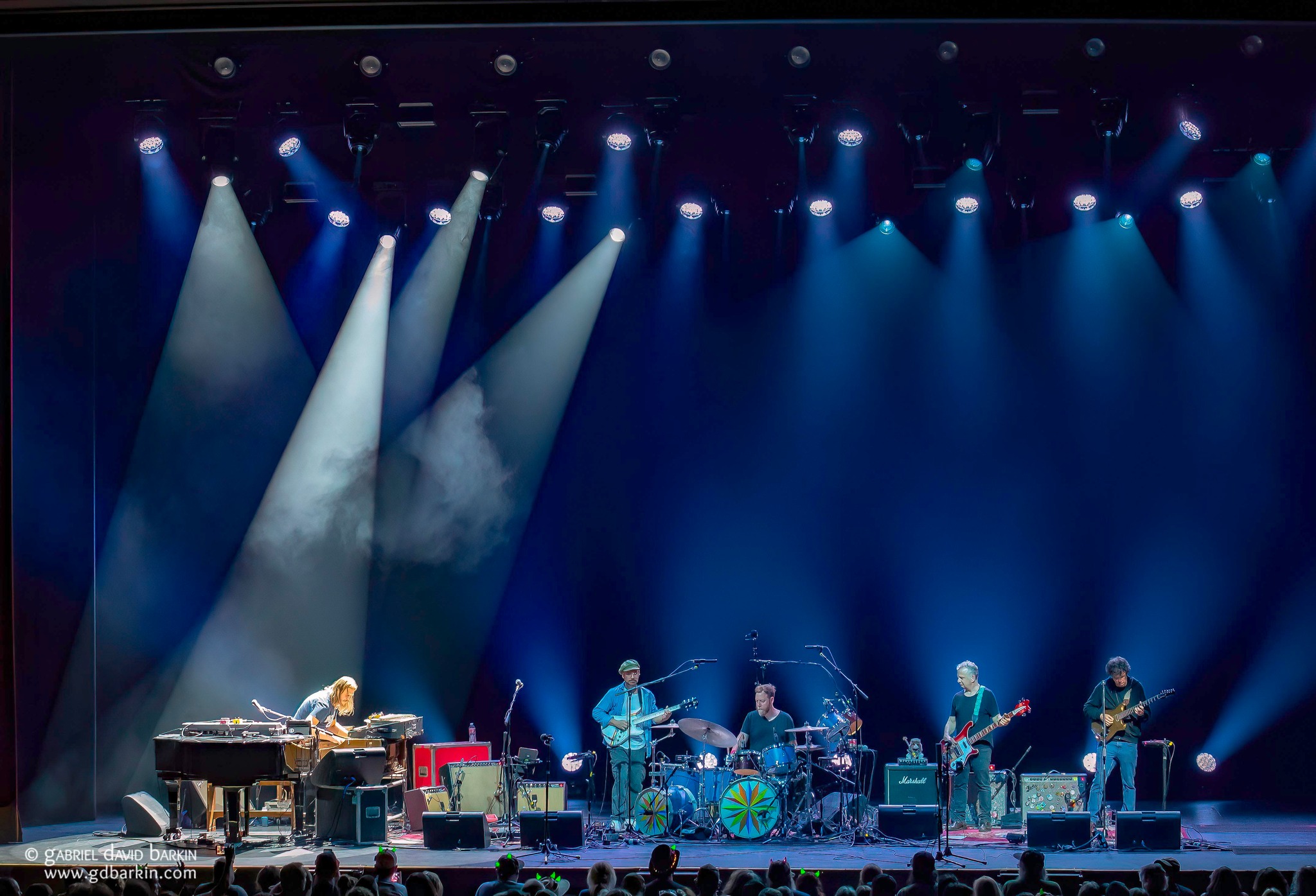
“Hard to Handle” came next. It’s hard to imagine that this classic was actually a relatively new song when Ron “Pigpen” McKernan added it to the Dead’s repertoire in 1969. Otis Redding had released it as a B-side barely a year earlier. In JRAD’s capable hands, the song felt timeless.
The energy stayed high for “Help on the Way” > “Slipknot.” Typical of JRAD, they skipped the expected Grateful Dead segue into “Franklin’s Tower” and instead jammed into “China Cat Sunflower.” Similarly, there was no “I Know You Rider” after “China Cat.” Delivering the unexpected is just one of the many ways JRAD keeps things fresh and puts their distinctive stamp on the vast inventory of Dead music.
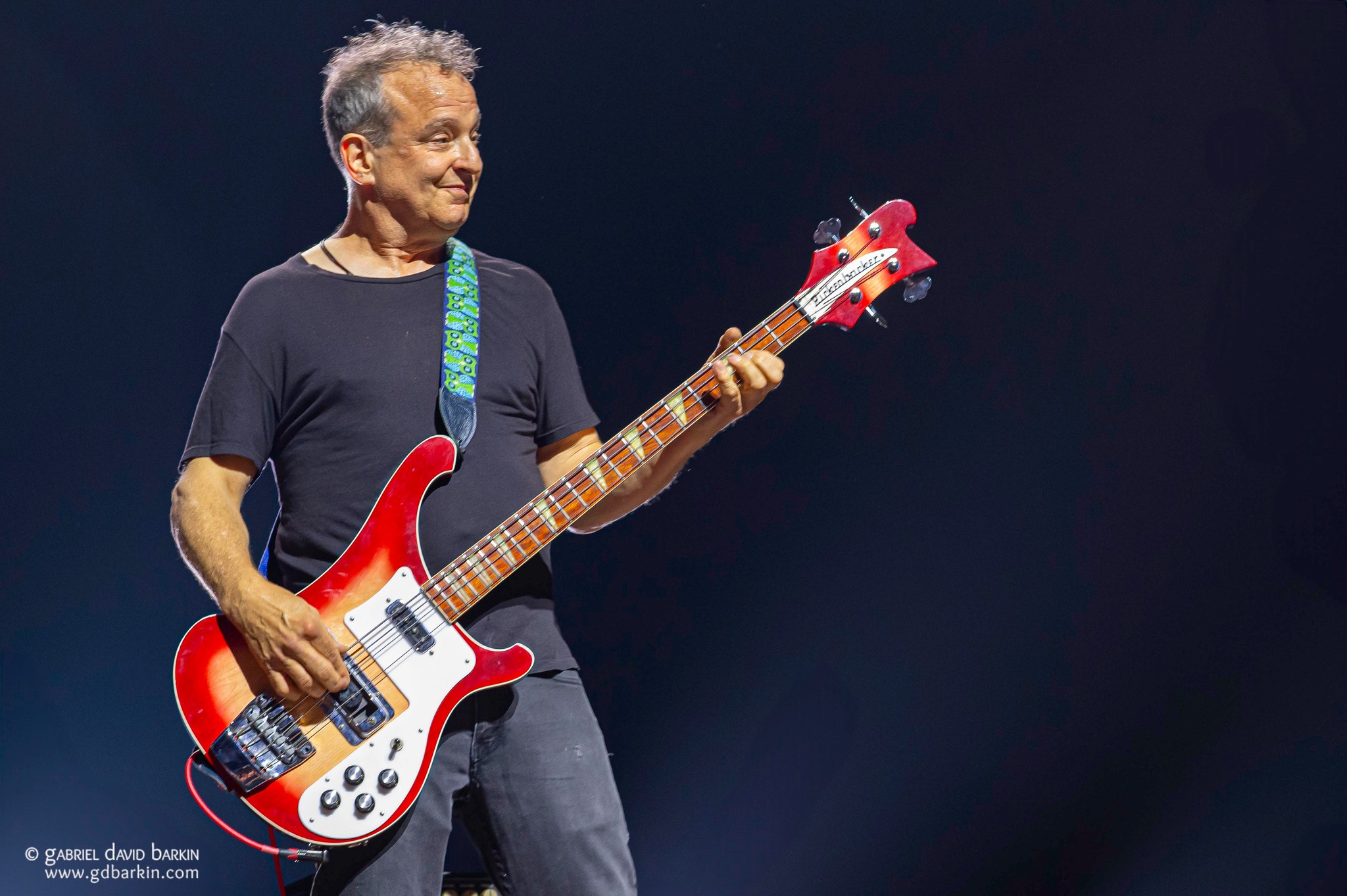
The Grateful Dead only played “I Washed My Hands in Muddy Water” about five times, but that’s enough for JRAD to throw it in the mix. Metzger’s blues voice was powerful on the top-ten country hit from 1965. Although it was crooned by Garcia when the Dead did it, this is as good a time as any to mention that Metzger does a pretty good “Bob Weir” not-quite-an-impersonation with his vocals. Hamilton, who trades with Metzger on most of the singing (Russo sings from time to time as well), doesn’t particularly sing like any members of the Dead.
A heavy blues jam out of “I Washed My Hands” led into “Viola Lee Blues,” the first set closer. Now almost a century old, “Viola Lee” was always a barnburner when the Dead played it, and Lesh often included a lively version in his Phil & Friends sets. JRAD started “Viola Lee” in fifth gear and never let their foot off the pedal.
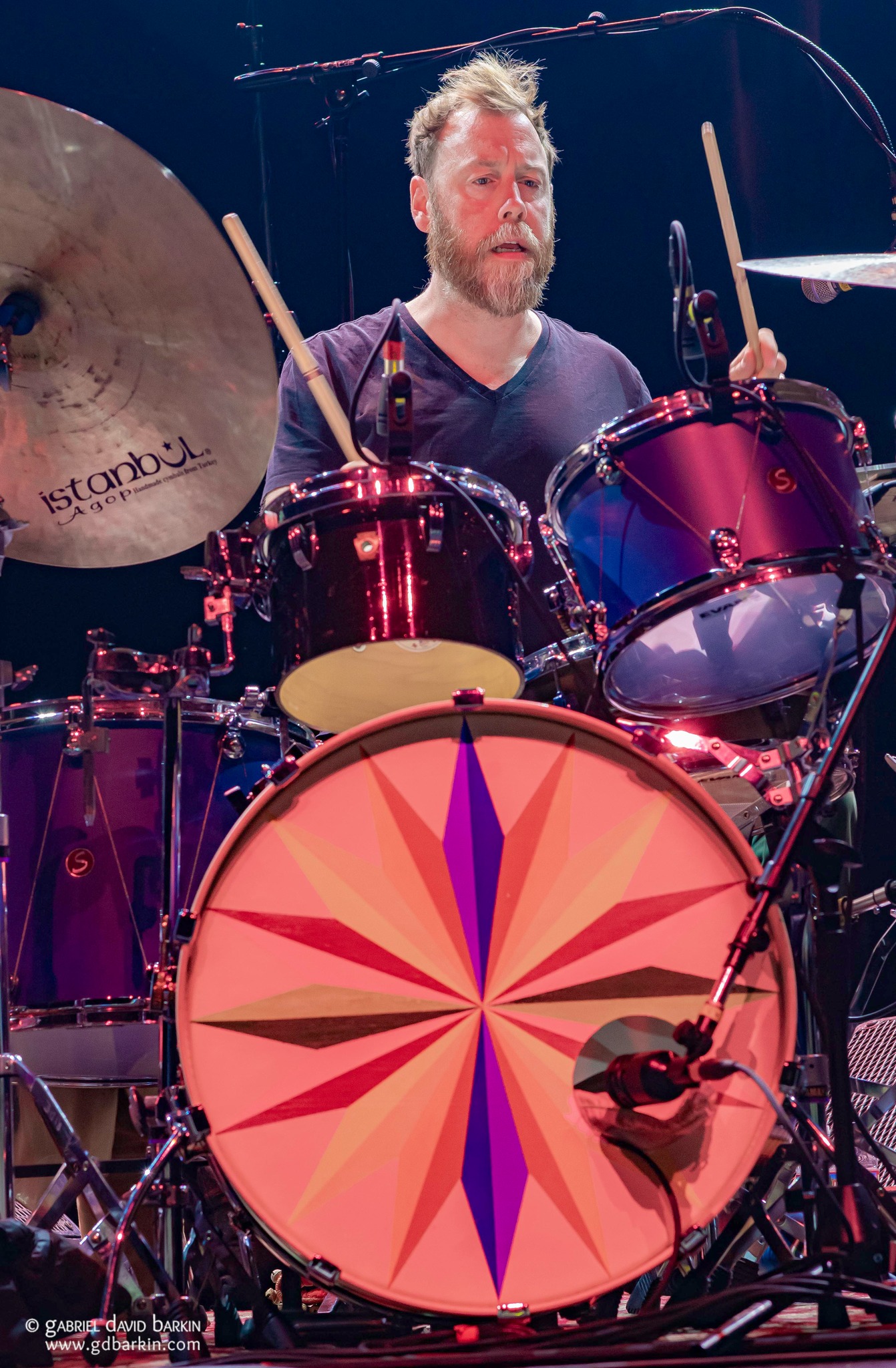
The second set began mellow, not unlike the first but with a much different groove. Russo started playing softly with mallets, then switched to sticks as the band increased the vigor. They slid eventually into “Estimated Prophet.” You can’t go wrong enticing a Bay Area audience to shout along with the refrain: “California!”
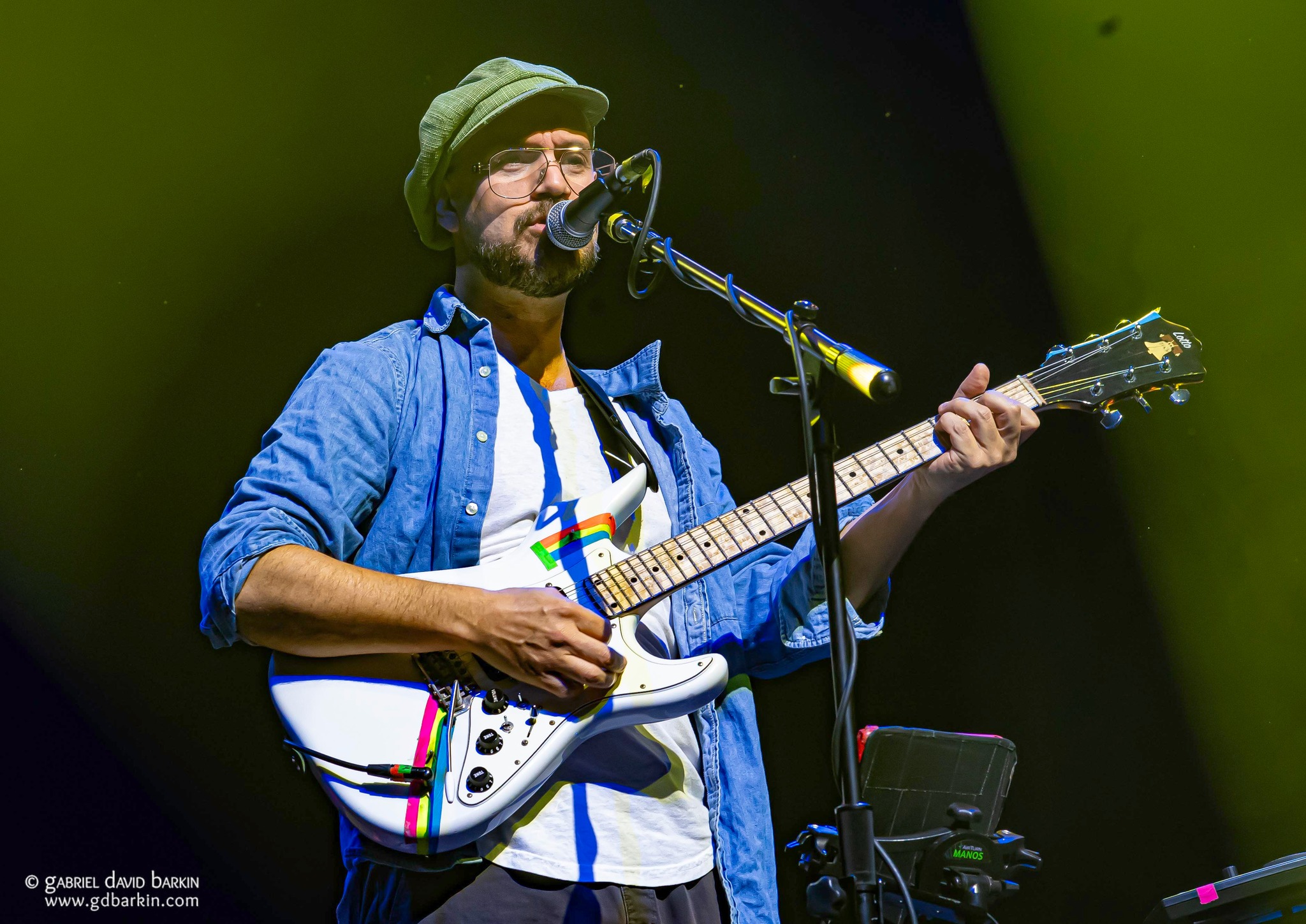
Toward the end of “Estimated,” Benevento turned to his grand piano and hammered out a mind-numbing solo. We can say a lot about Hamilton’s wicked-bitchin’ guitar god solos and Metzger’s tight, blues-based, jazzy leads – but for my money, Benevento’s piano solos are the cream of a very tasty crop of JRAD jams. Along with Holly Bowling, he is the most gifted pianist on the jam band scene. (Remind me sometime to tell you the story of seeing those two brilliant pianists play together for the first time. Yes, that’s a tease.)
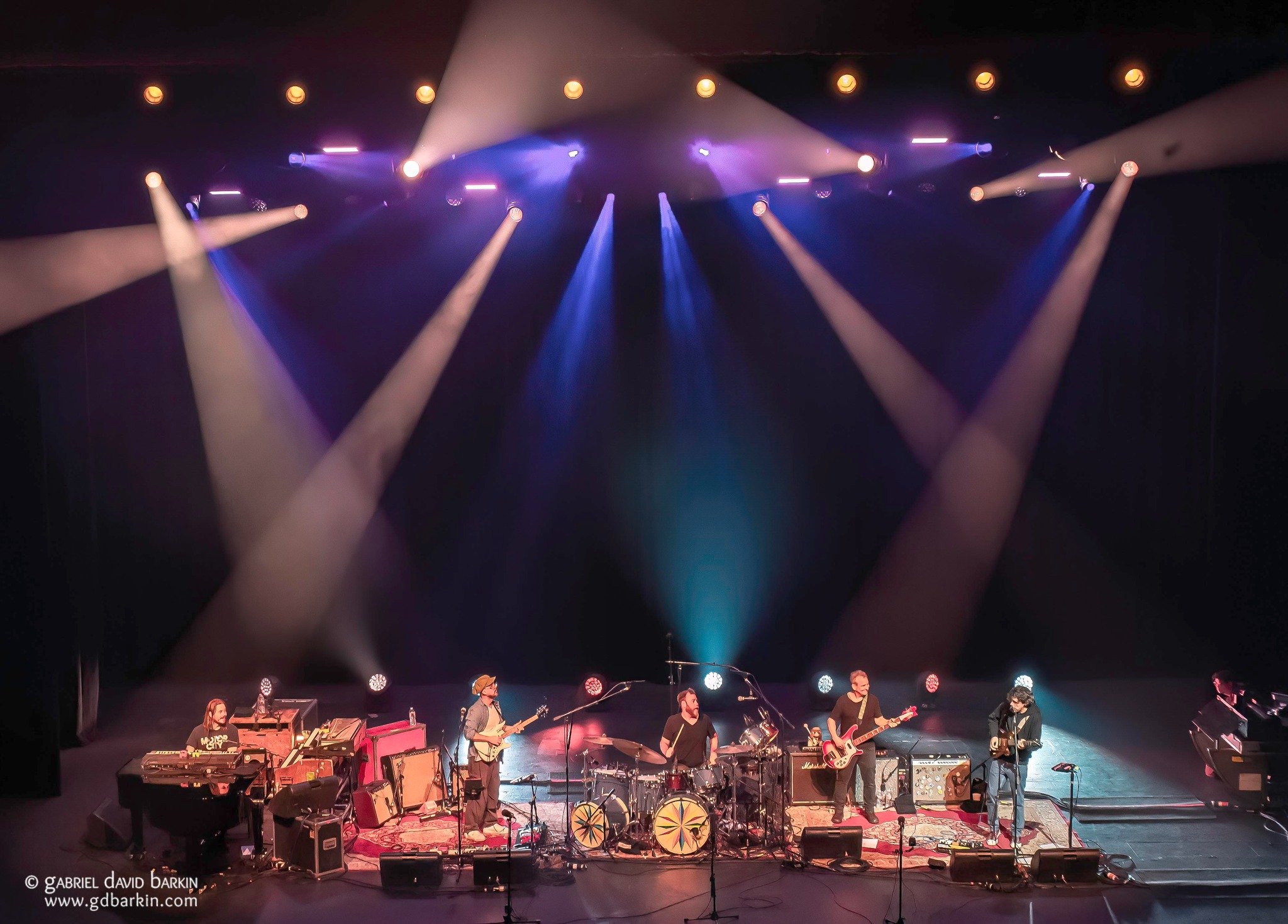
What else? Well, there was a strikingly awesome crescendo in “They Love Each Other” leading into the final chorus of “Lord, you can see that it’s true!” There was a cover of Bob Dylan’s never-released “Tell Me, Momma.” Regarding the latter: I can’t find any reference to the Dead ever playing this song. It looks to me like Phil & Friends played a song a few times called “Tell Me, Mama,” and Robert Hunter also wrote lyrics for yet another song with that name, but setlist.com says it was the Dylan song that was played by JRAD Thursday. (Any help out there on this one? I’ll admit to some confusion here.)
“The Wheel” started slow, almost pastoral with a feeling reminiscent of Brian Eno’s ambient stuff. Russo and Hamilton shared vocals on this one, and the theme built into yet another high-intensity crescendo that jumped into the stratosphere for the final refrain of “Bound to cover just a little more ground!”
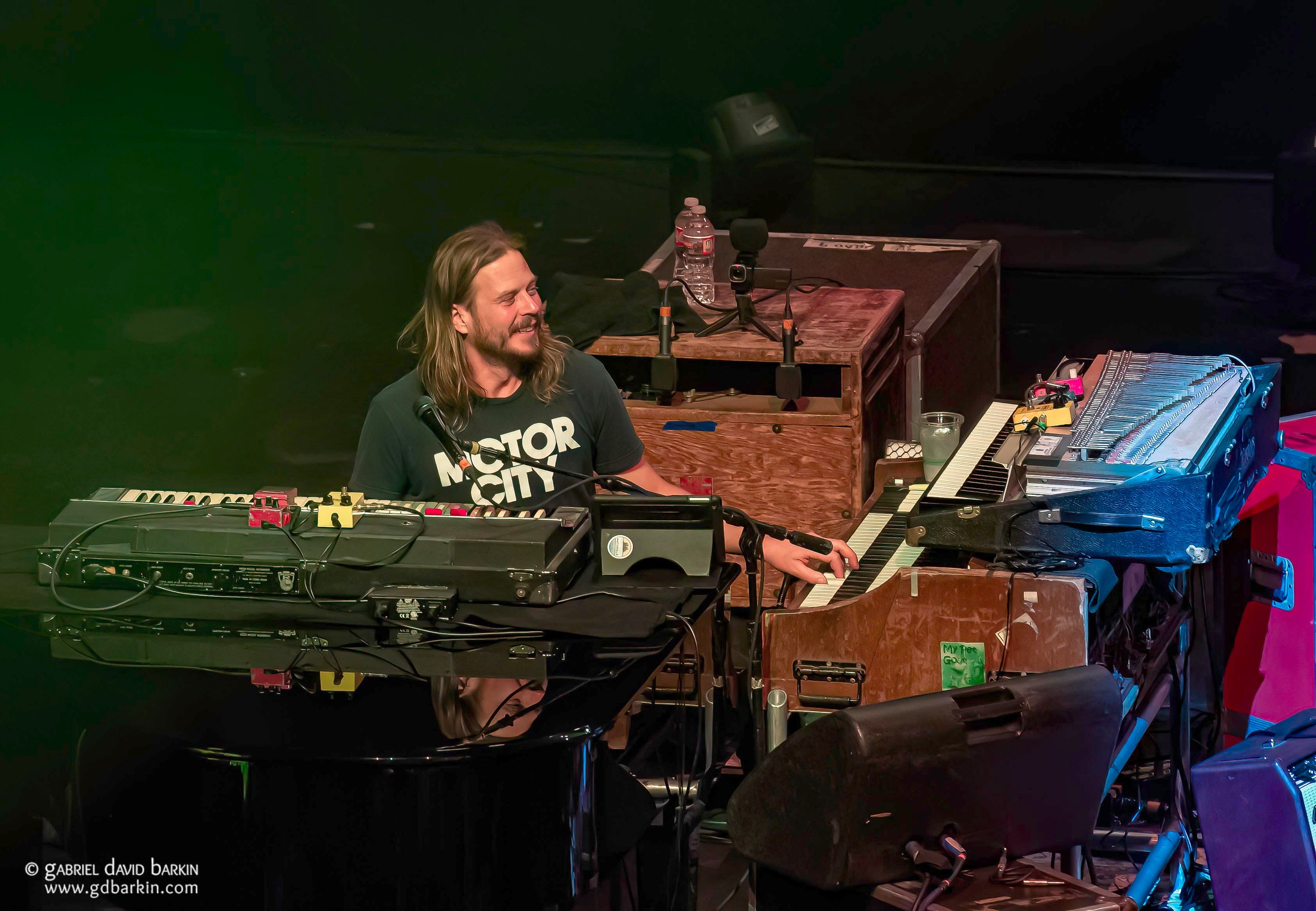
“Uncle John’s Band” and “Samson and Delilah” gave the audience room to chime in on anthemic lines like, “God damn, well I declare!” and “If I had my way!” Another Benevento piano solo in “Samson” drew big cheers.
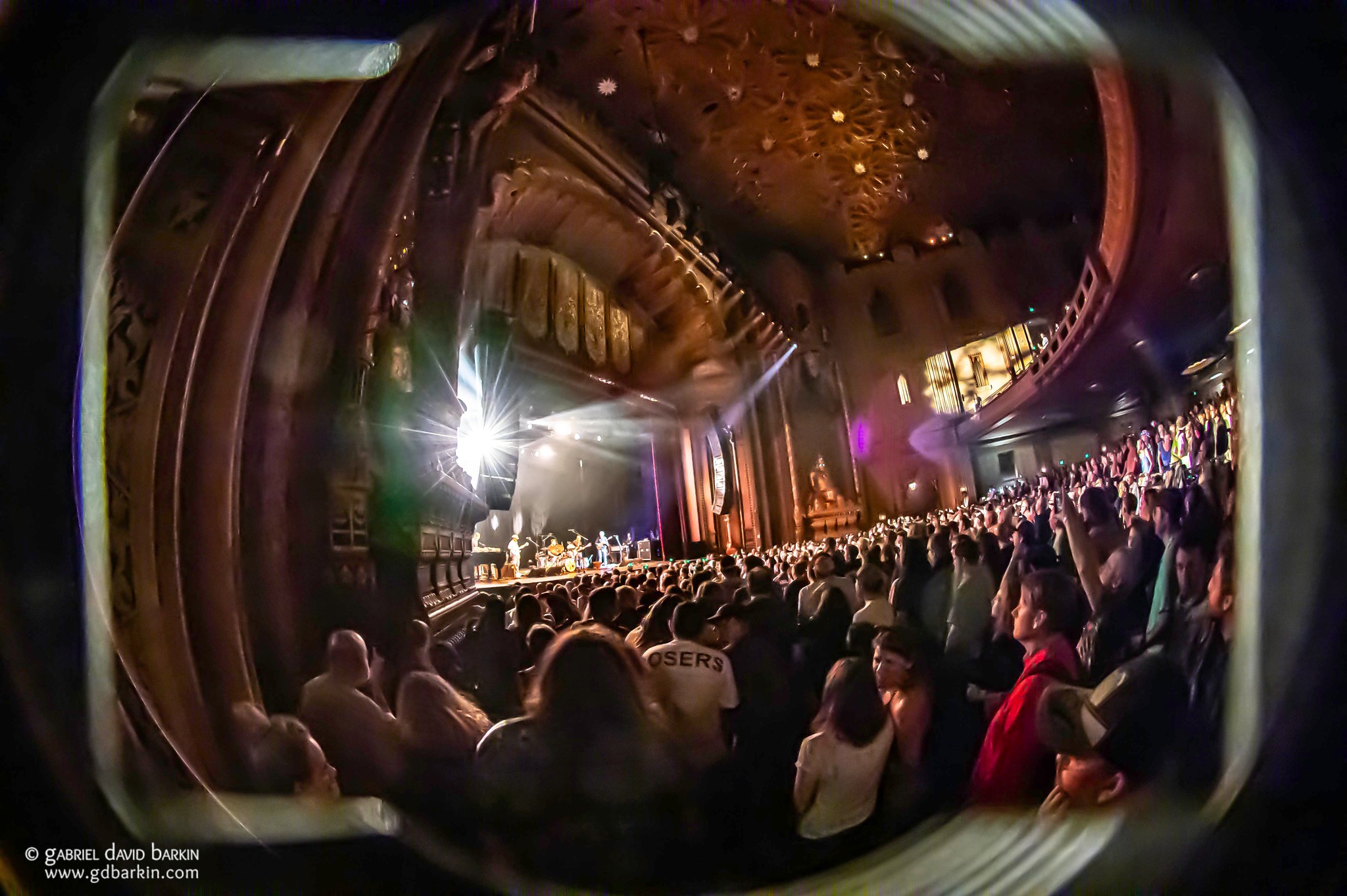
For an encore, we have to wonder if JRAD had forewarning from friends in the extended Lesh family of the news that would hit us all like a ton of bricks on Friday morning. “He’s Gone” was spiritual and closed with an a cappella refrain of “Nothing’s gonna bring him back.” Ominous in hindsight. We exited the building in high spirits, unaware of the gathering gloom. The street was ripe with the smell of hot dogs from street vendor carts and the sound of nitrous vendors on the corner blowing up balloons.
Okay, it’s Friday morning now as I write this. Just as I am finishing up my first draft of the intro and Thursday night review, my wife texts me with the news about the death of Phil Lesh. “Phil died today,” she writes. Incredulous that it could be that Phil, I rack my brain for a moment, thinking of which Phil she could mean. “There’s gonna be some major grieving and heart-wrenching music tonight,” she adds, and I absorb the truth. I rush to Facebook and the New York Times website, and there it is. Fuck.
All I can think of at first is the usual trite stuff: “Such a loss.” “May his memory always be a blessing.” “He’s gone …” “May the four winds blow you safely home.”
He wasn’t the best at what he did. He was the only one who did what he did.
“We will survive. We will get by.”
And the show must go on.
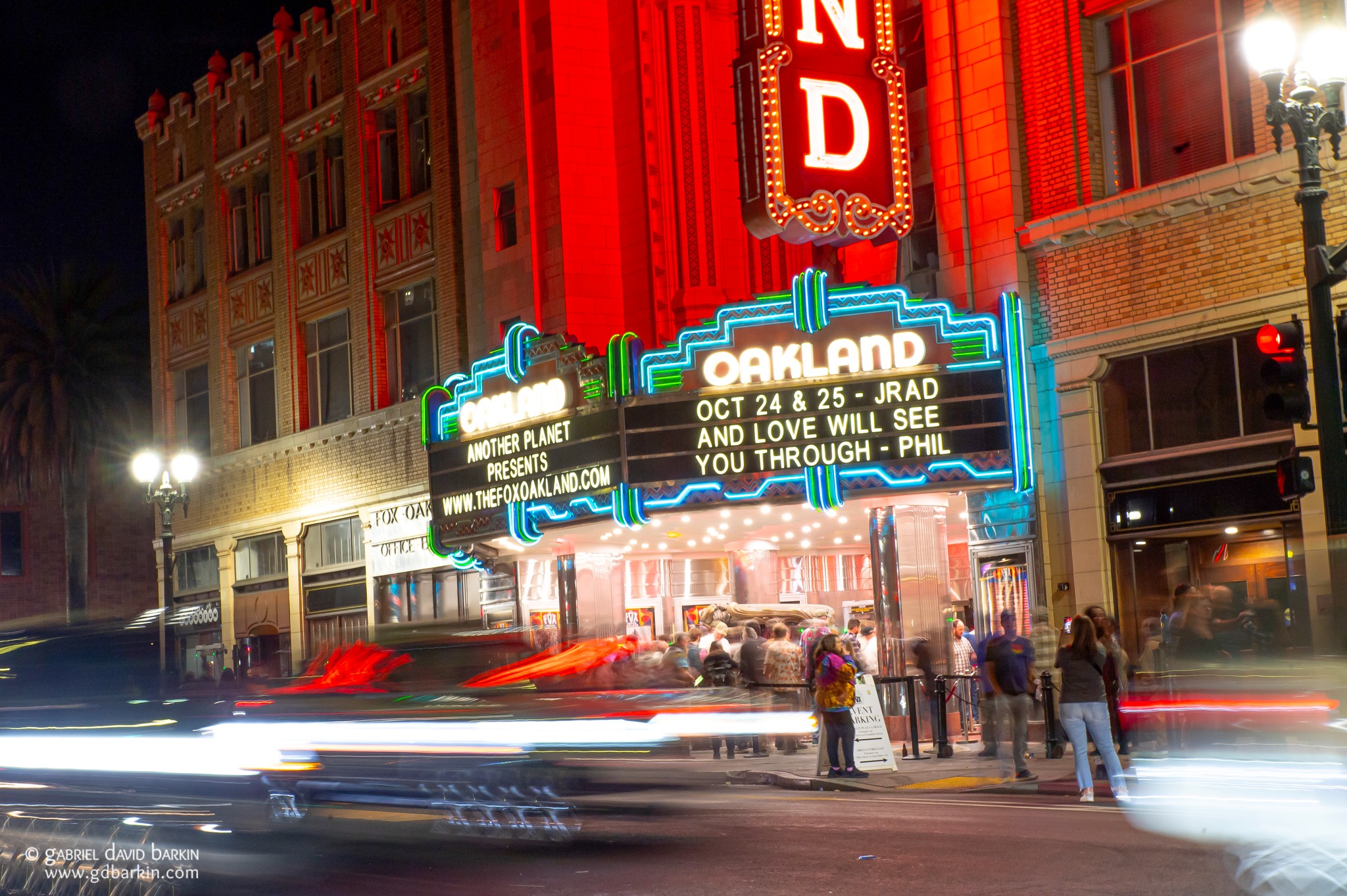
So, as it turns out, the JRAD shows at the Fox straddled the time both Before and After. The marquee at the Fox Theater on Friday read, “And love will see you through – Phil.” News that Phish had opened their show on Friday with “Box of Rain” circulated on socials, along with images of the Empire State Building lit up in tie-dye colors for Lesh and a press release from the remaining members of The Grateful Dead honoring their fallen comrade. A friend told me people had started leaving flowers and notes at the empty building in San Rafael that housed Terrapin Crossroads. (I am heading over there shortly as I write to check it out and contribute.)
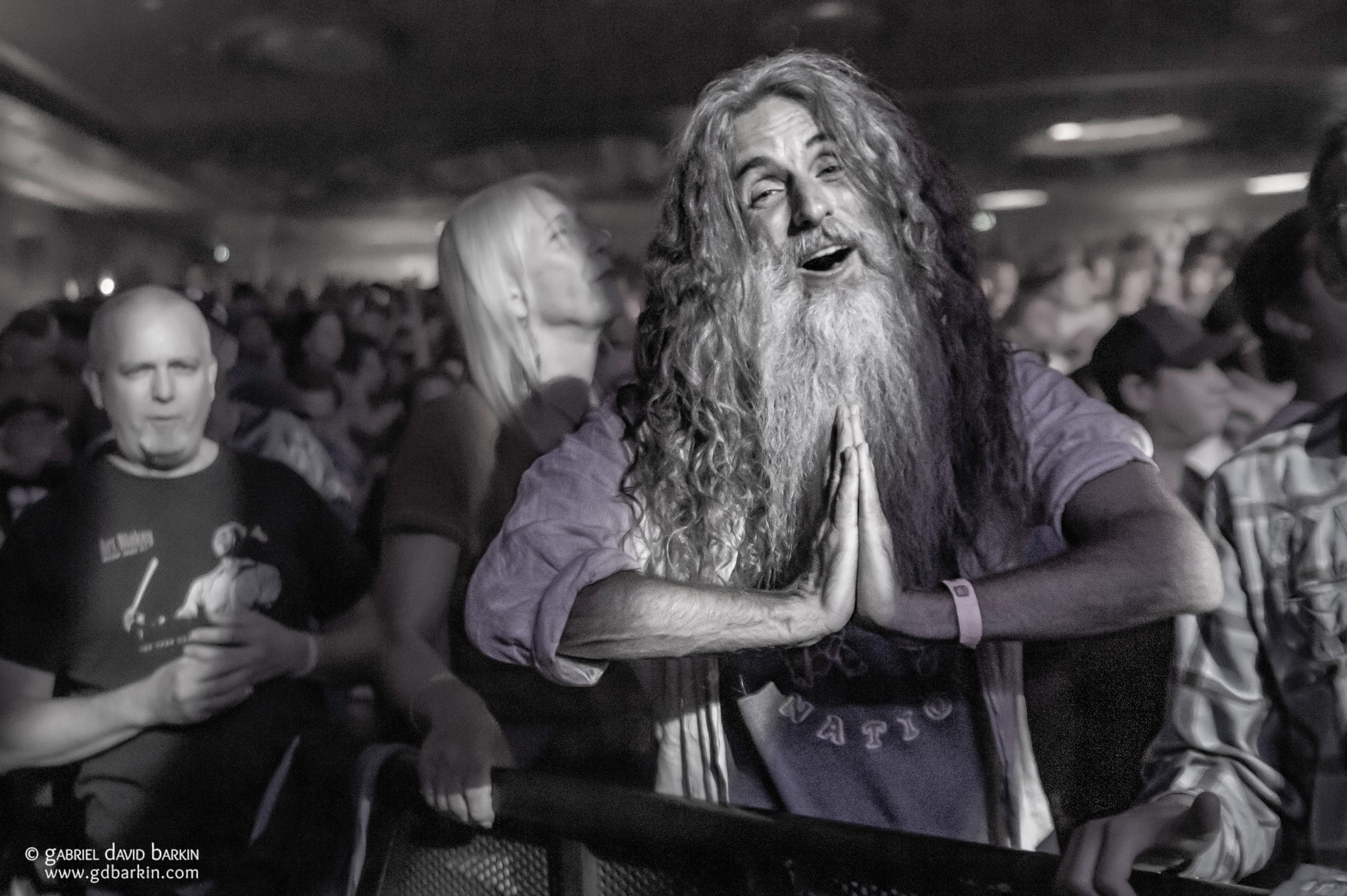
There were many hugs outside on the street and inside the Fox all night. (Not-so-fun fact: Again, Uncle Bobo was in the house; Bill Graham died on the same calendar date in 1991.) The remaining tickets for Friday’s show sold out quite quickly when the news hit the pavement on Friday morning. I’ve been to the Fox many times, and it was never as packed inside as it was for this show. The demand for community and catharsis was deep. I have to imagine any Dead cover bands out there playing local bars on Friday night were equally inundated with the faithful.
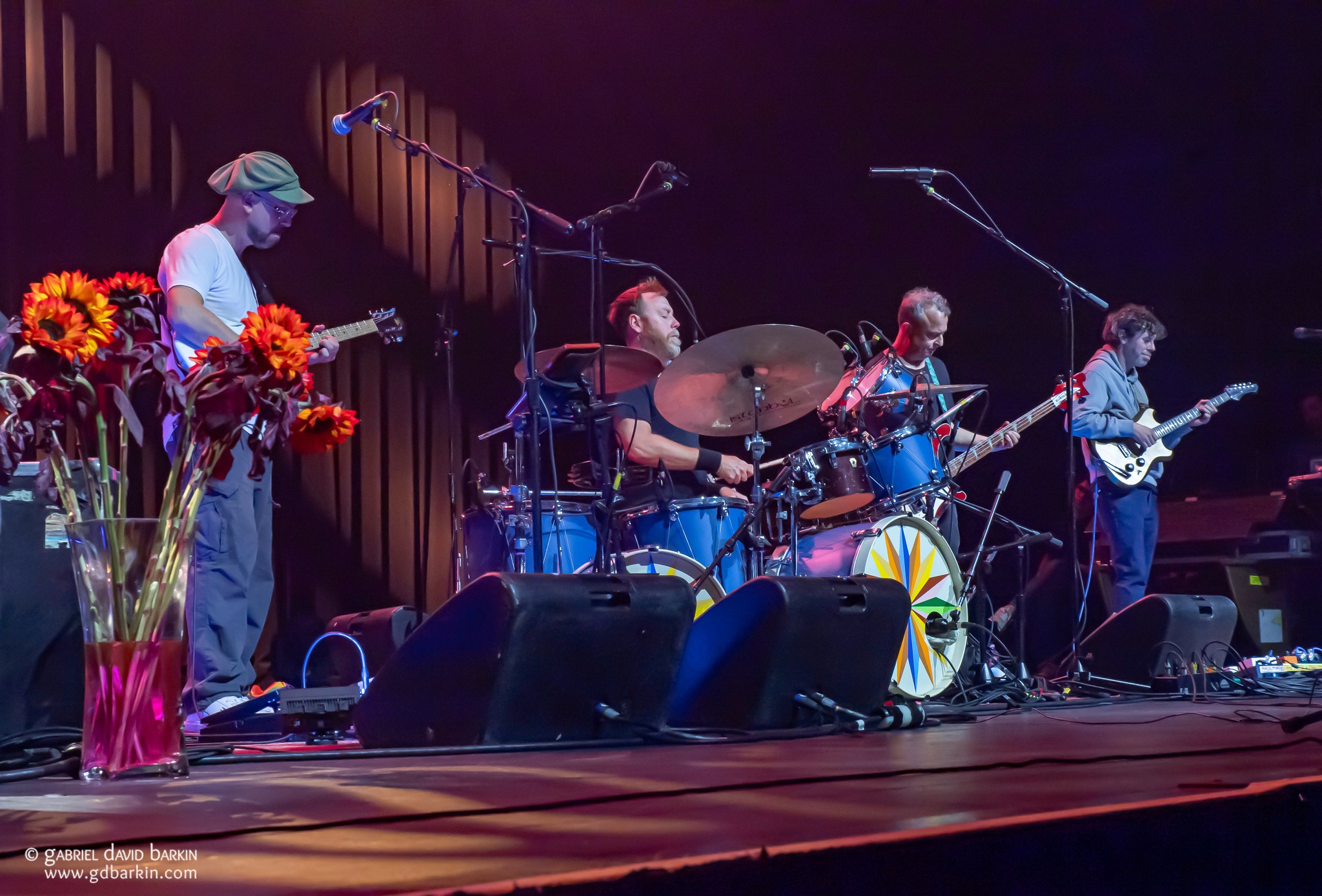
It’s hard for me to write about this show in the usual “review” format. What I will say for starters is that it was the most emotional, intense, energetic performance I have ever experienced in the world of Grateful Dead music. The only similar event I can think of is the Jerry Garcia memorial in Golden Gate Park, but that was several days after he’d died. With Lesh, this was fresh, the tears hadn’t stopped flowing, and many of us were still in deep shock.
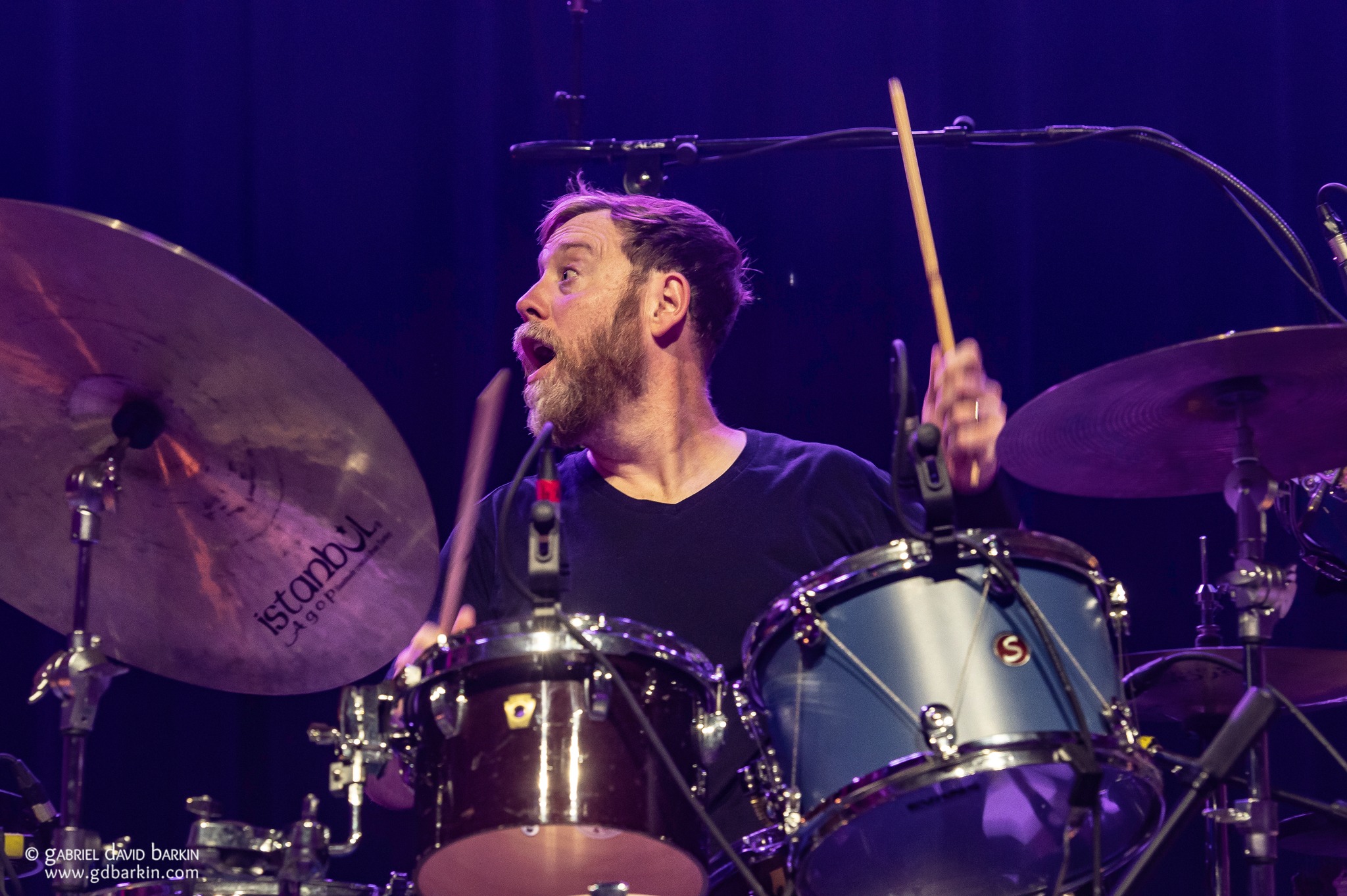
Count the members of JRAD among the mourners. All five have shared a stage, and no doubt spent many hours offstage, with Phil Lesh numerous times. Little ol’ me, I only talked with Lesh briefly a few times. Once was on New Year’s Eve in 1992 when the Dead didn’t play – I was a chef in a restaurant at the time, and Phil and Jill Lesh were frequent customers. When Lesh came in to pick up a to-go order that night, I met him at the counter to give him his food. I said, “This is the first time in a decade I didn’t come to see YOU on New Year’s Eve, and you came to see ME!” We laughed and shook hands.
I also got to chat briefly with him a few times at Terrapin Crossroads, where he always received fans with grace, politeness, respect, and a few minutes of his time.
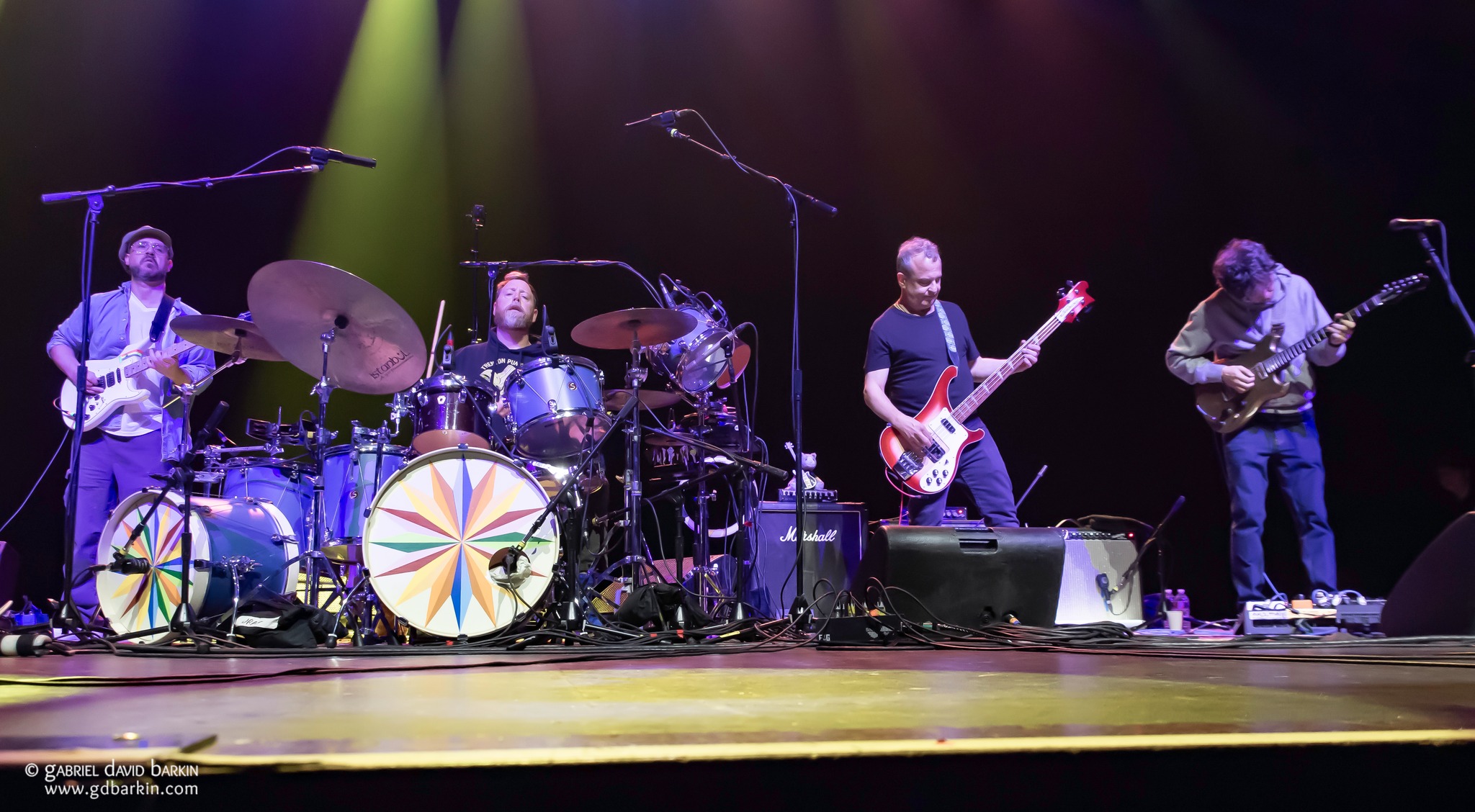
But yeah, for Joe, Marco, Tom, Scott, and Dave – Phil was a friend, perhaps also a mentor, a teacher, a family elder. Same for many people in the audience, I’m sure, given that the Bay Area is chock full of people who worked for the Dead and/or Lesh in one way or the other at some point in time. The wounds were still wide open. Everyone was still processing.
The members of JRAD wore their hearts on their sleeves. Russo was crying and looking toward the heavens. Metzger’s eyes seemed red with tear stains. Same with the eyes of many folks in the front row. One of the rail riders said to me at the set break, “I hope Joe doesn’t keep crying, it makes me cry too every time.” But she said that with compassion, of course, not scolding.
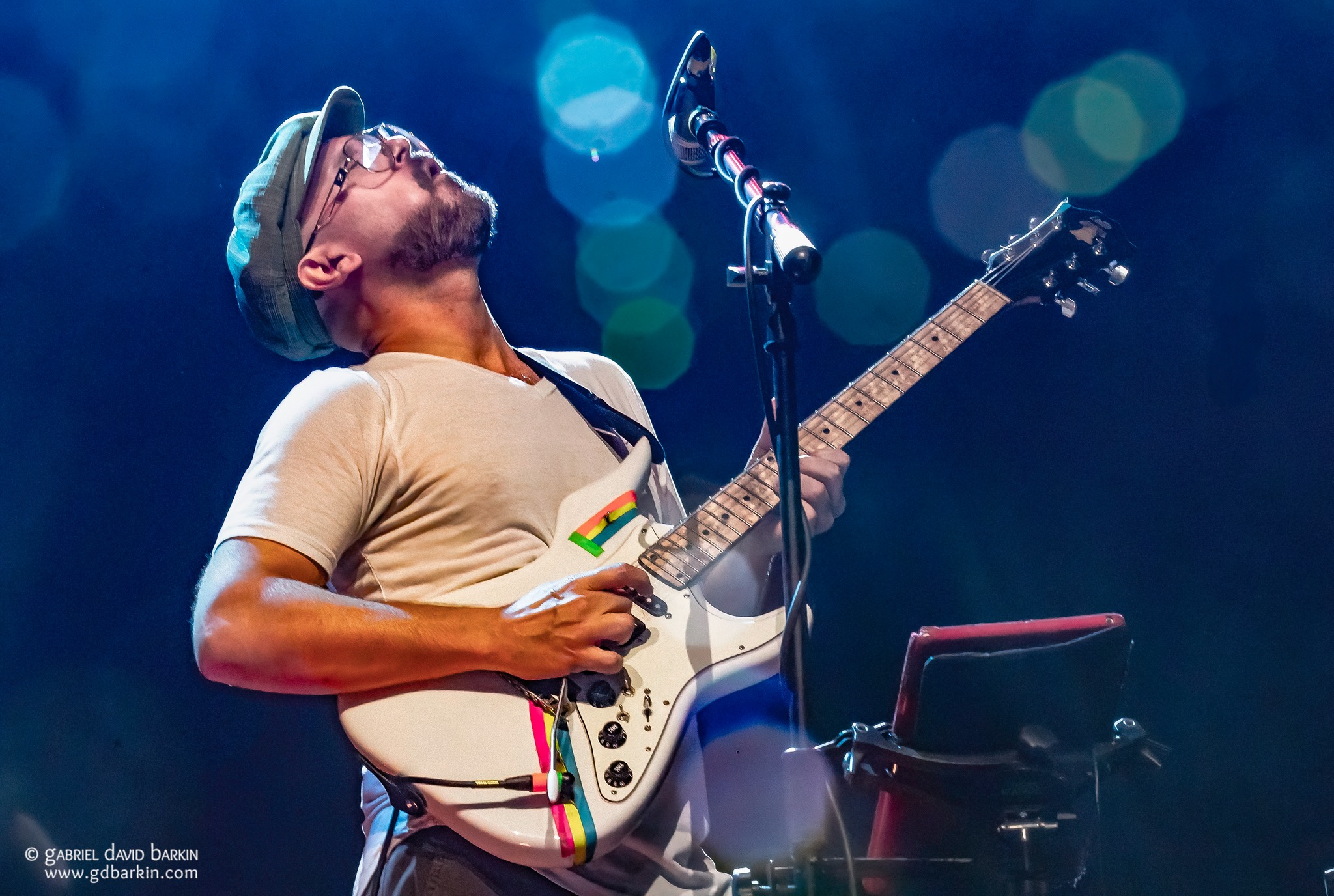
The band began with a mellow, passionate instrumental dirge, their faces imparting their obvious grief. The musicians slowly lifted their wings and emerged with “Birdsong.” Perhaps I only heard what I wanted to hear, but it sounded to me like Hamilton changed the pronoun from “she” to “he” in the lyric: “All I know he sang a little while, and then flew off.” (My wife corroborates this.)
It also seemed to me that Dreiwitz’s bass was extra loud in the mix all night. Or maybe that was just Lesh chiming in.
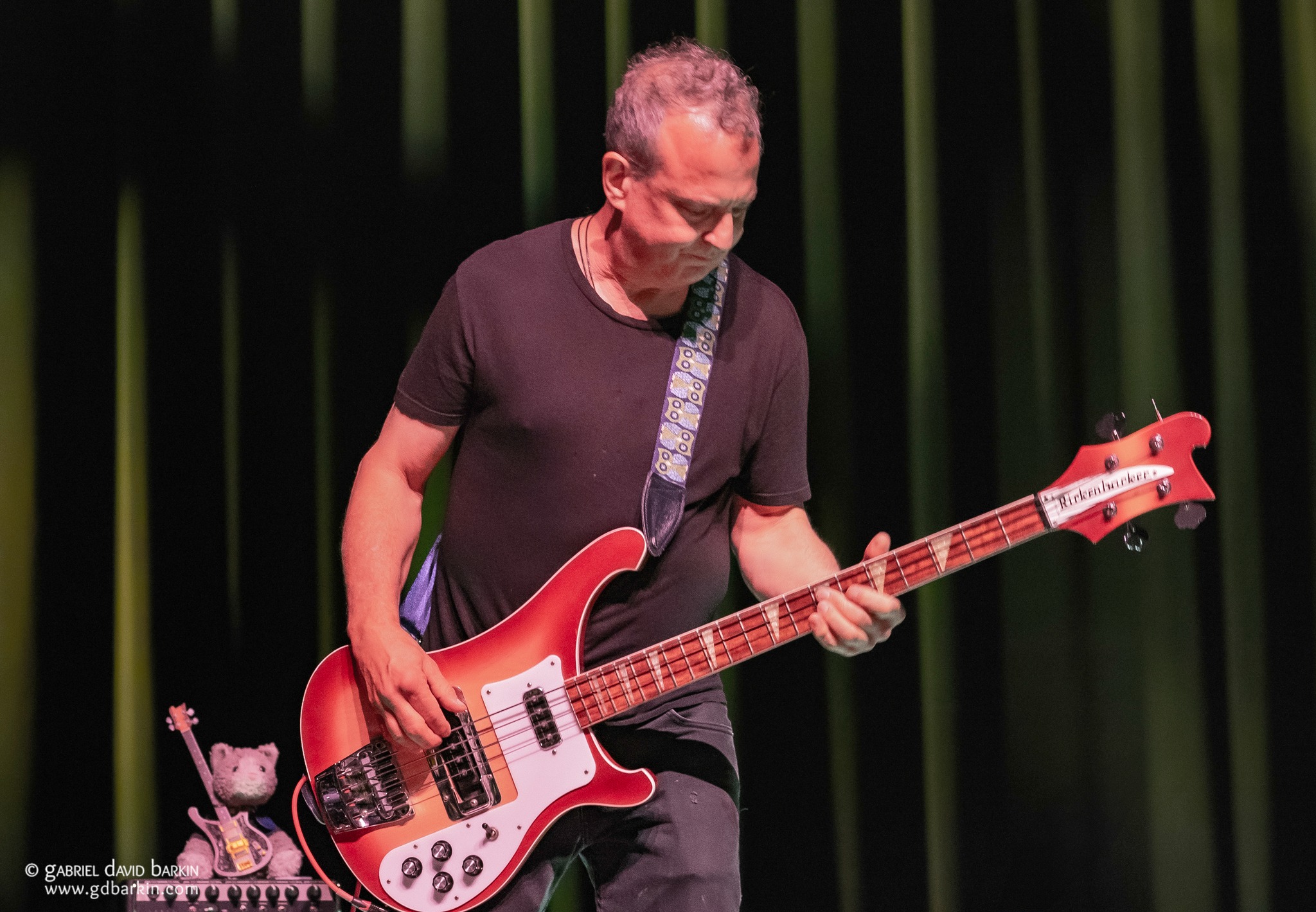
Next was a potent “Box of Rain.” The entire assemblage sang along. If there’s a heaven, Lesh heard the angels sing. Believe it if you need it.
(I had to pause when I wrote this. A bit emotional. God damn it, this sucks. Let Phil sing!)
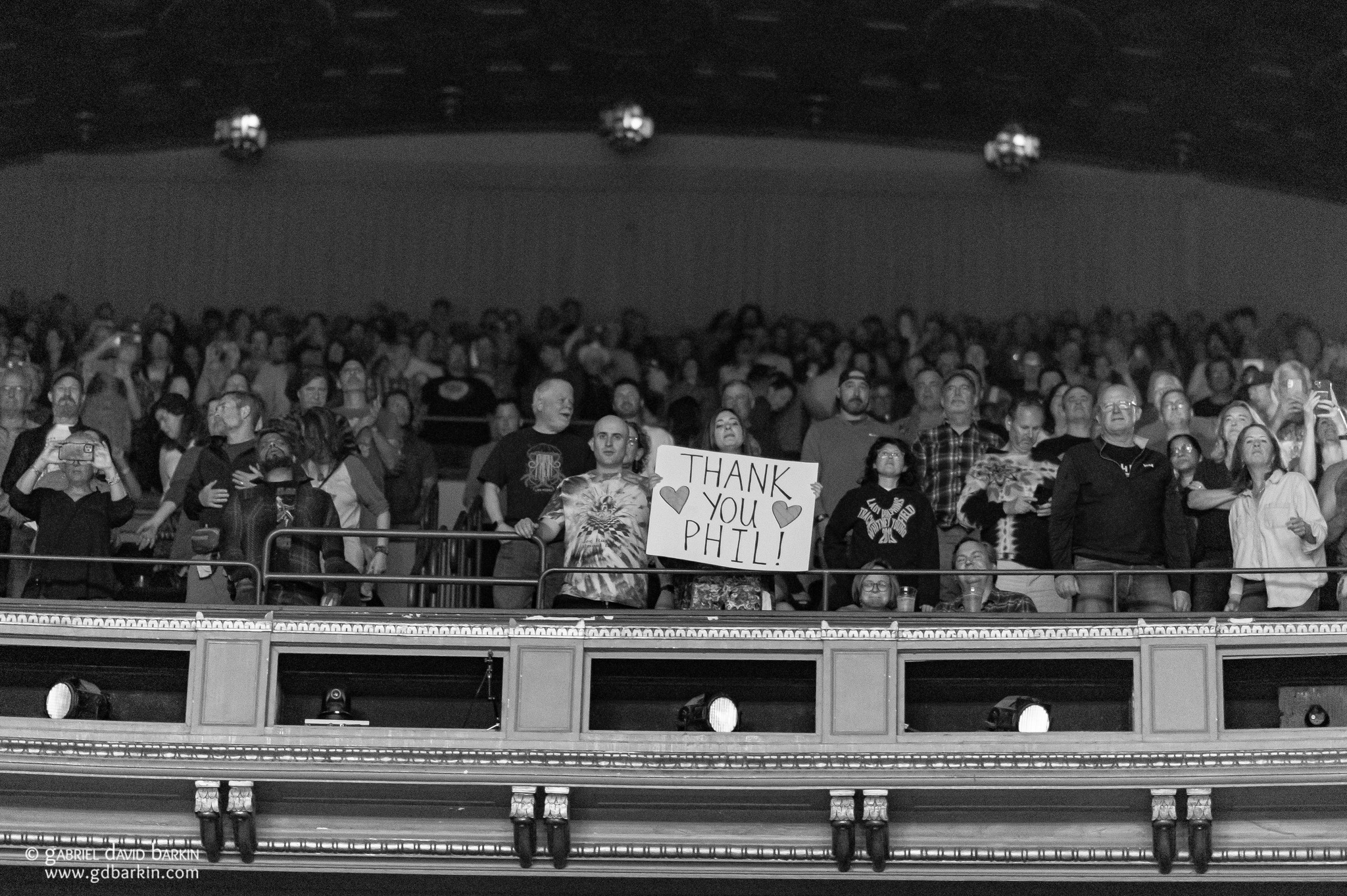
Front and center up in the balcony, someone held up a sign. “Thank you Phil.” Two hearts on either side. Thank you, sign person.
As I said, it’s impossible to “review” this show. Yeah, they played lots of great stuff. (Set list below.) The musical interludes and jams and solos were all intense, dazzling, poignant. They took the energy up to the moon and beyond. They brought it down to earth and took time to be reflective and sensitive. This was music that meant something.
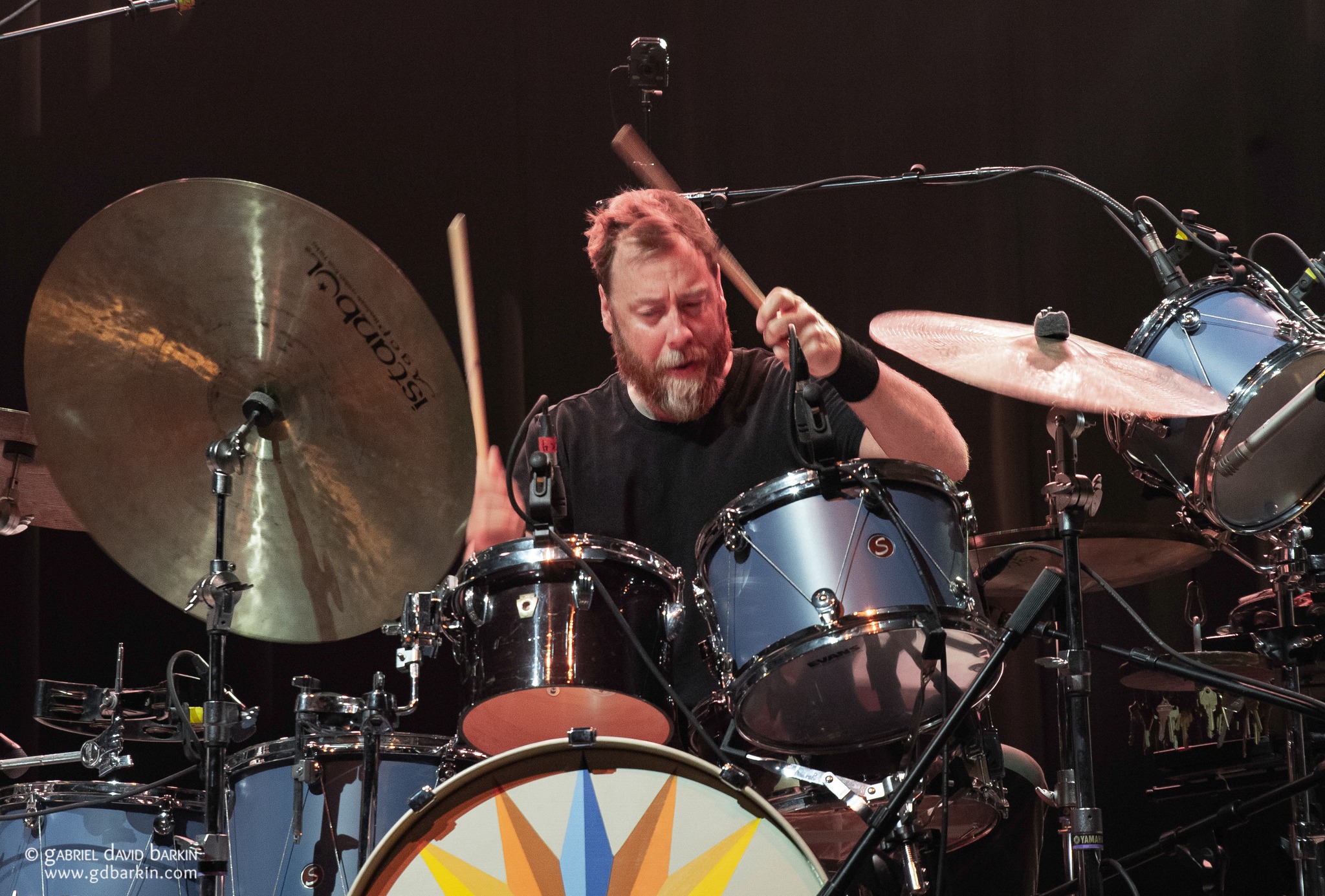
There was one space jam I noted, part of “St. Stephen” in the second set, which took me back to the days of the Benevento-Russo Duo. The band was channeling early Pink Floyd, a la “Astronomy Domine” and “Set the Controls for the Heart of the Sun.” If this were an ordinary show, I’d spend time dissecting the alt-jazz genius in this section: Benevento throwing in a dash of Pigpen-ish Farfisa organ; Hamilton’s frenetic picking; Russo keeping a steady pulse while the maelstrom of music grew around him.
But this was not a night for dissection. It was a night for communion and release. I put down my camera for most of the second set. And the set never seemed to end.
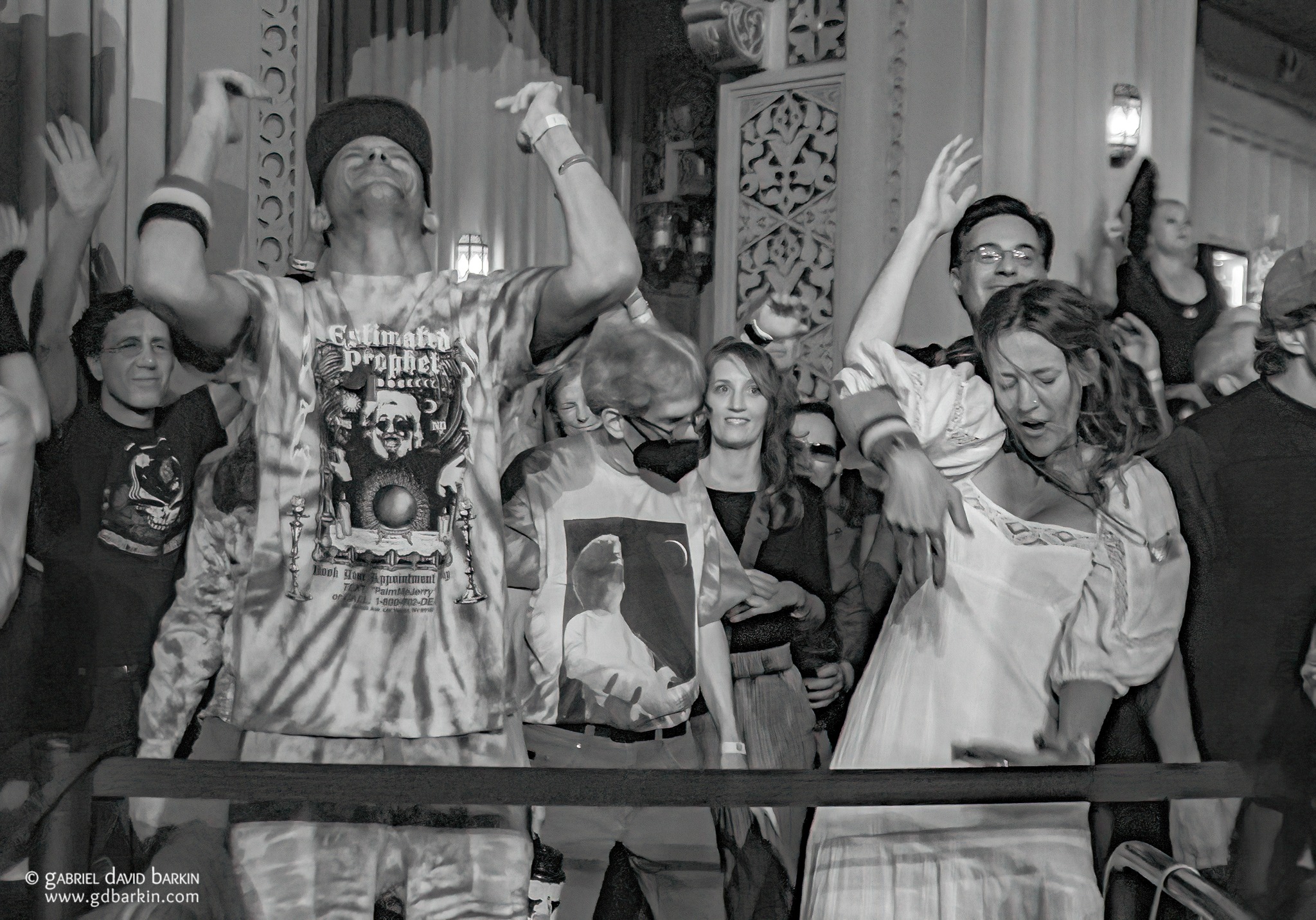
The “Unbroken Chain” jam in the midst of the never-ending string of second set songs was another particularly cathartic, emphatic stretch. JRAD skipped the verses and just segued into the bombastic middle part. Phil in the house.
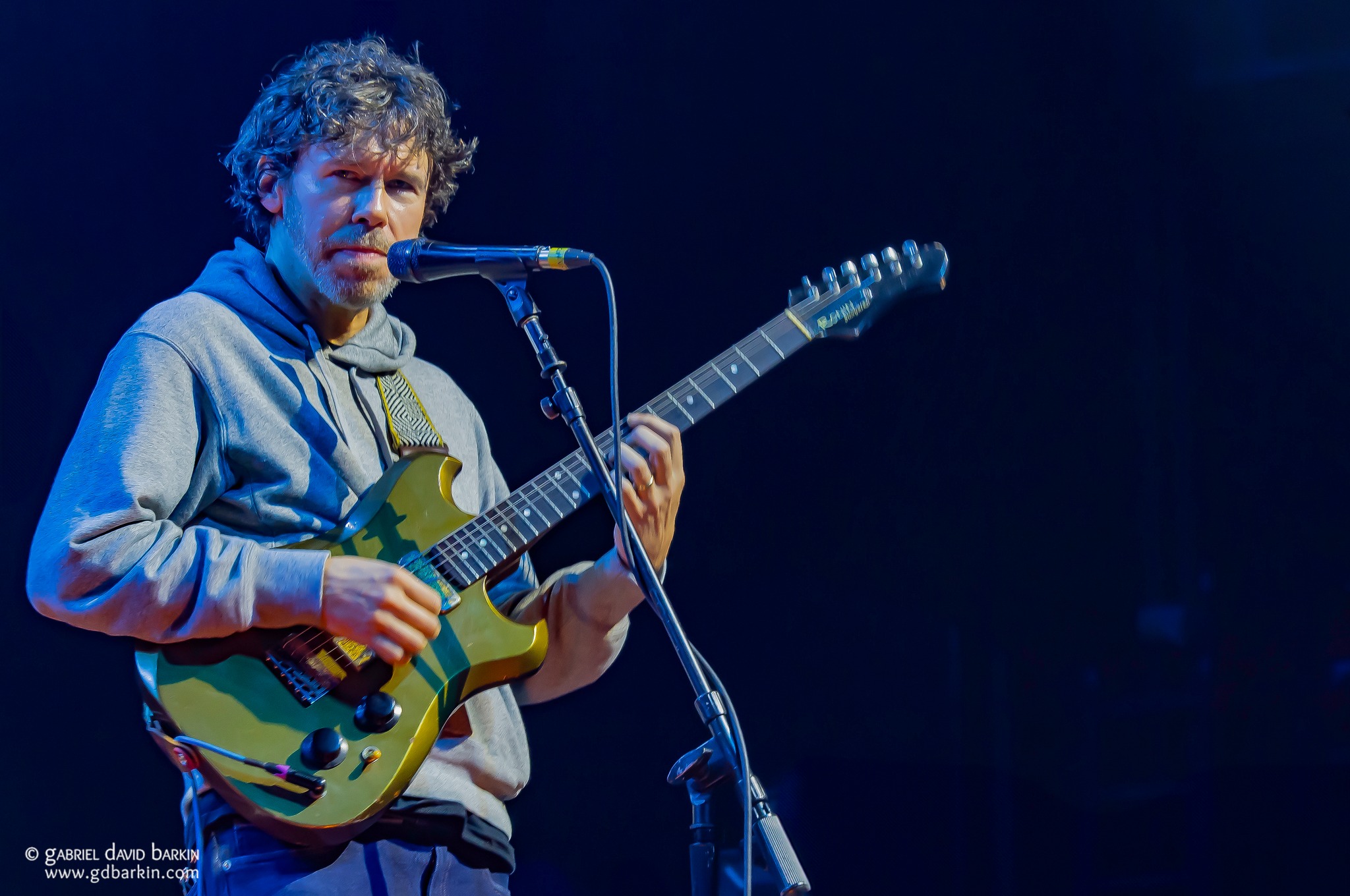
One of the hallmarks of JRAD is they don’t always start songs they tease, and they don’t always finish songs they start. “Cumberland Blues” never reached the coda section. “St. Stephen” never got to the “Fortune comes a’crawlin’” part. It’s really all just one long, amazing song anyway. Doesn’t that kind of sum up Lesh’s long life in a way? Doesn’t it all roll into one?
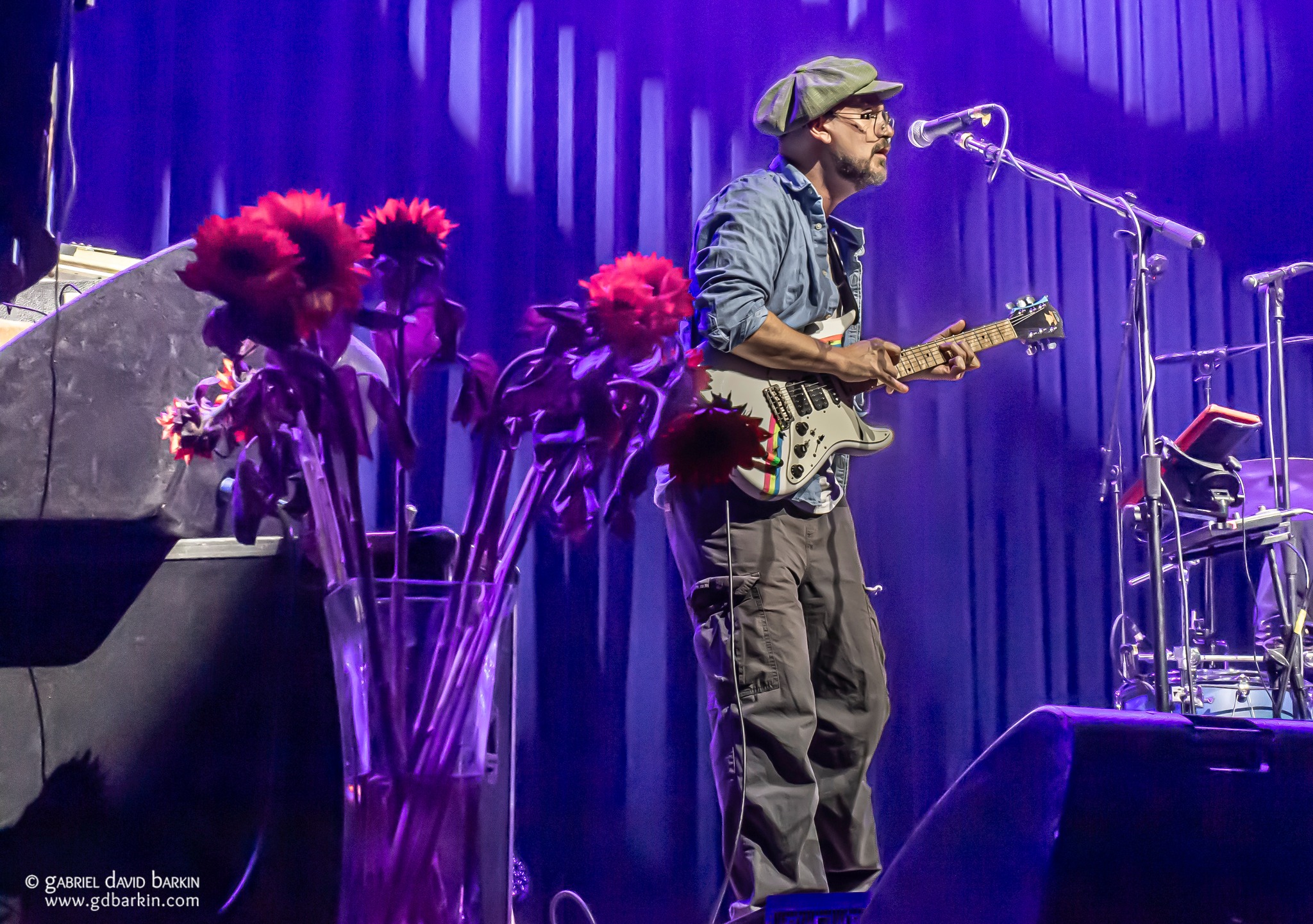
The second set was far longer than the usual 75 minutes in a typical JRAD show. When they finally came in for a landing after more than two hours, Russo spoke to the gathering. He could barely get out a “Thank you Phil” before breaking down. Hamilton gave him a hug. Color me surprised if there was a dry eye in the house.
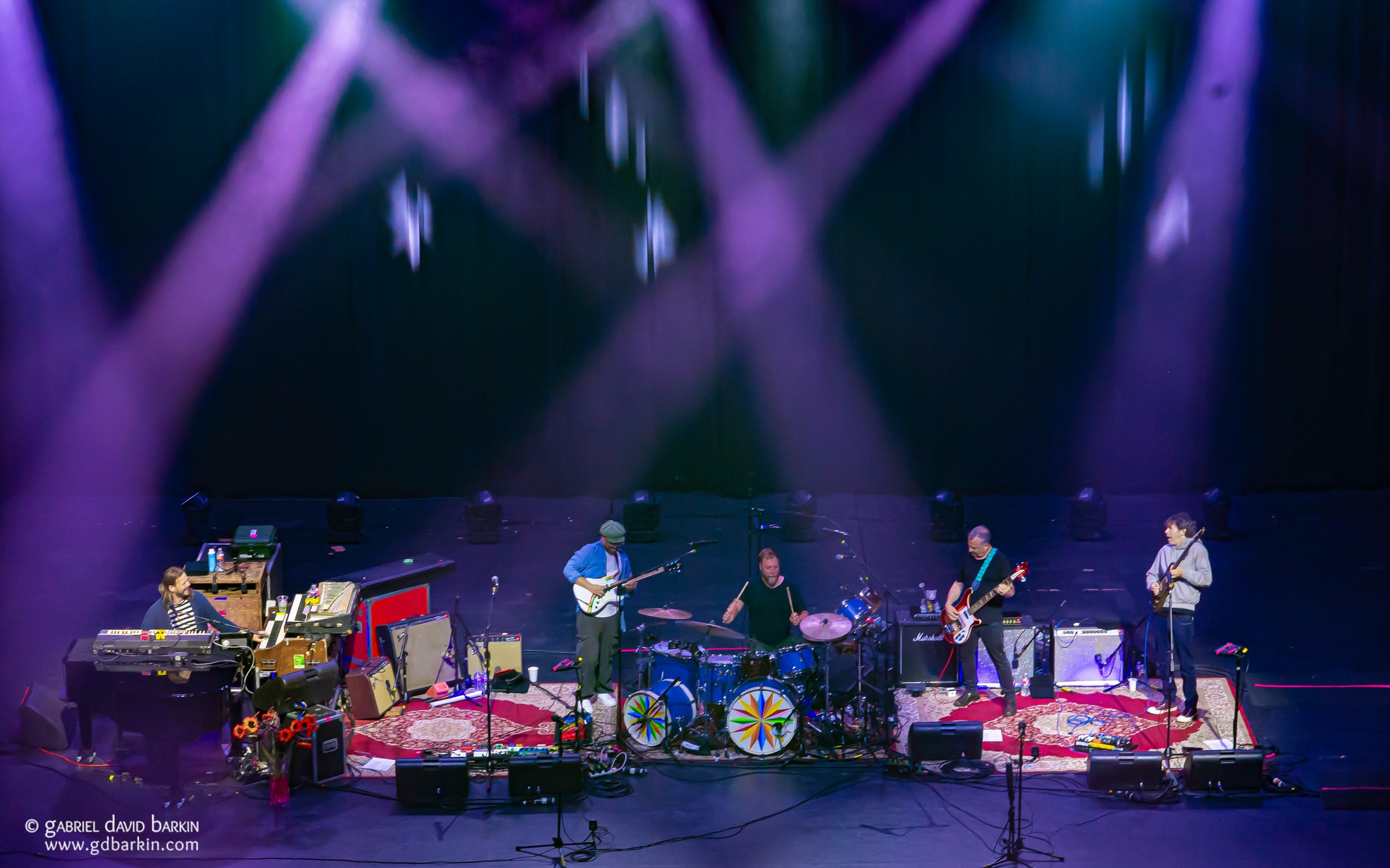
The “Not Fade Away” encore surprised nobody, even if they hadn’t given thought ahead of time to what the band might play to send Lesh home on this poignant evening. Truly, our love will not fade away, you could hear it in the singing and clapping in every corner of the Fox. All five members of JRAD finished playing and let the Deadheads take over. They put their instruments aside and stood with us to pay respects to our dear, lost, loved one.
Our love will not fade away.
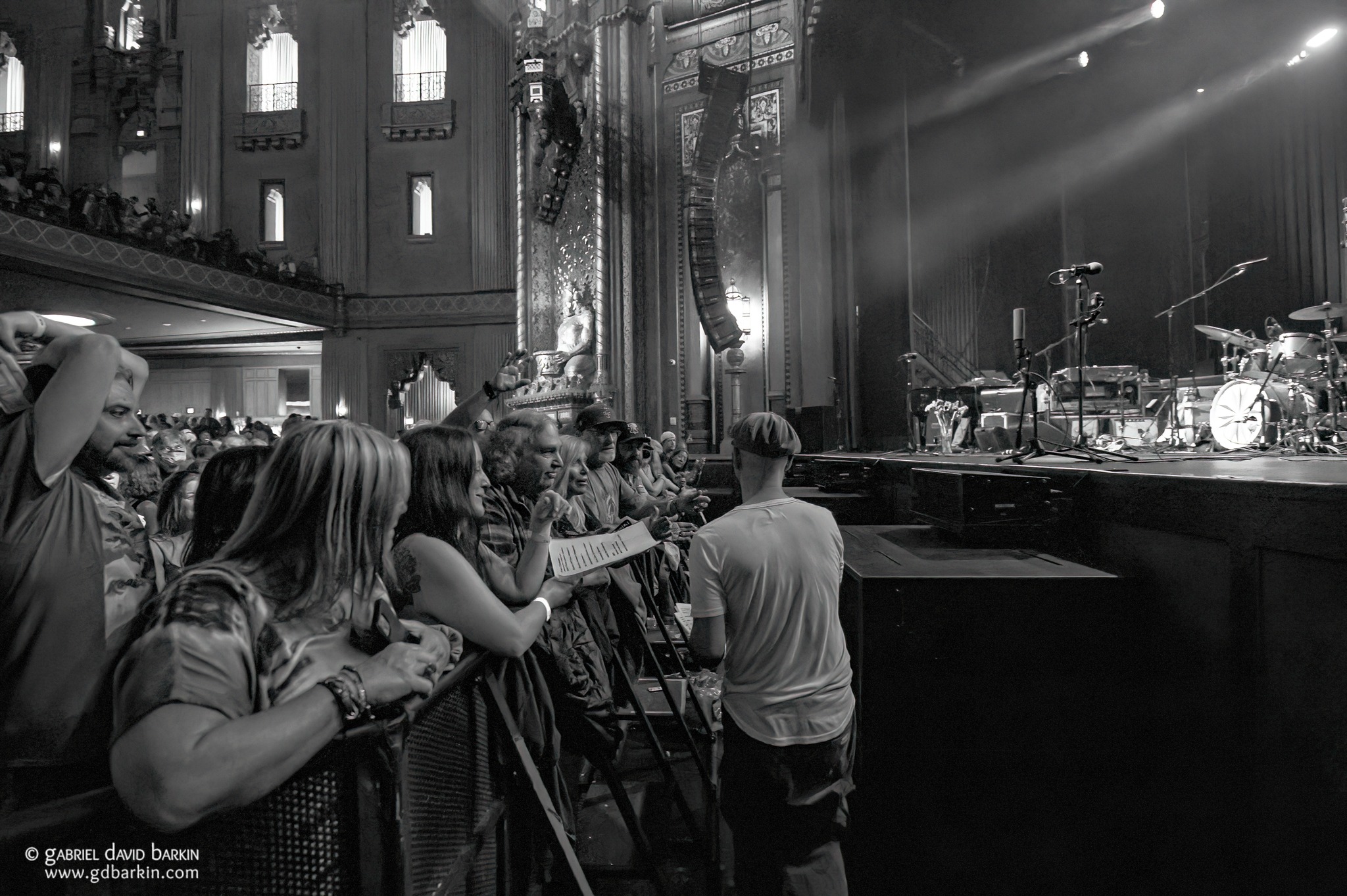
'Hamilton was the last one on stage. He collected the setlist sheets and hopped into the pit. (Sadly, they didn’t have time for one song written on the setlist, “Broken Arrow,” the Robbie Robertson song Lesh occasionally sang with the Dead.) After handing out copies of the set to some of the folks down front, he stood up on stage again for a minute or so, clapping along with us.
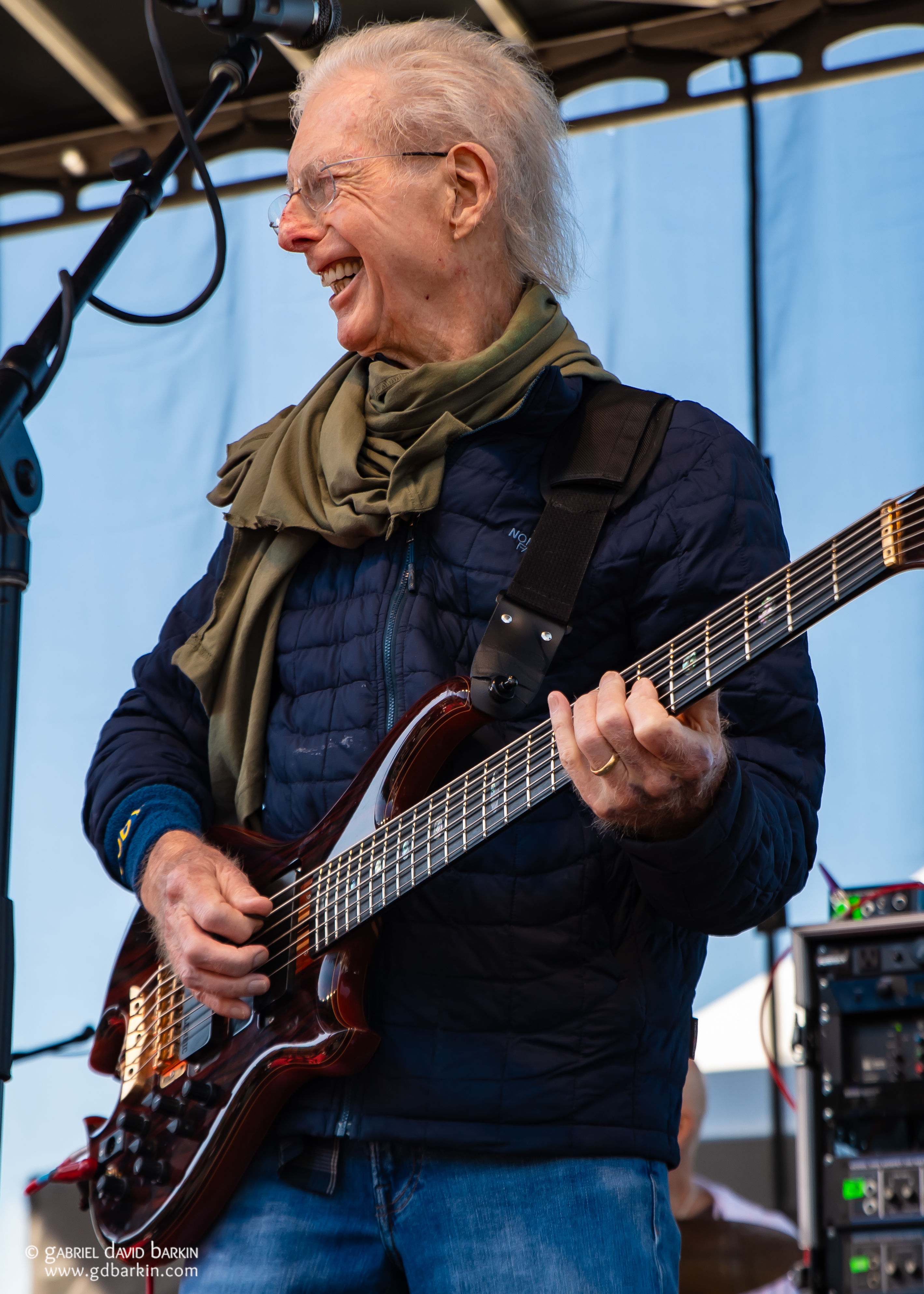
Phil Lesh, 1940-2024. What a long, strange, beautiful trip.
He wasn’t the best at what he did. He was the only one who did what he did.





